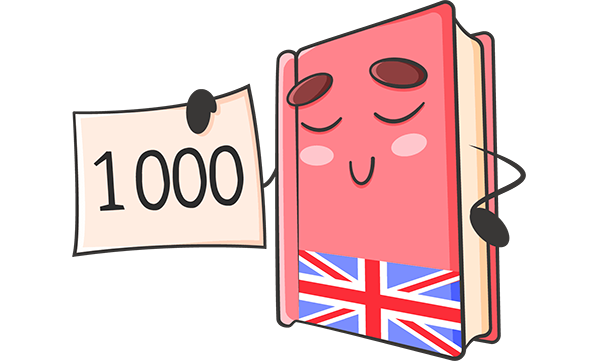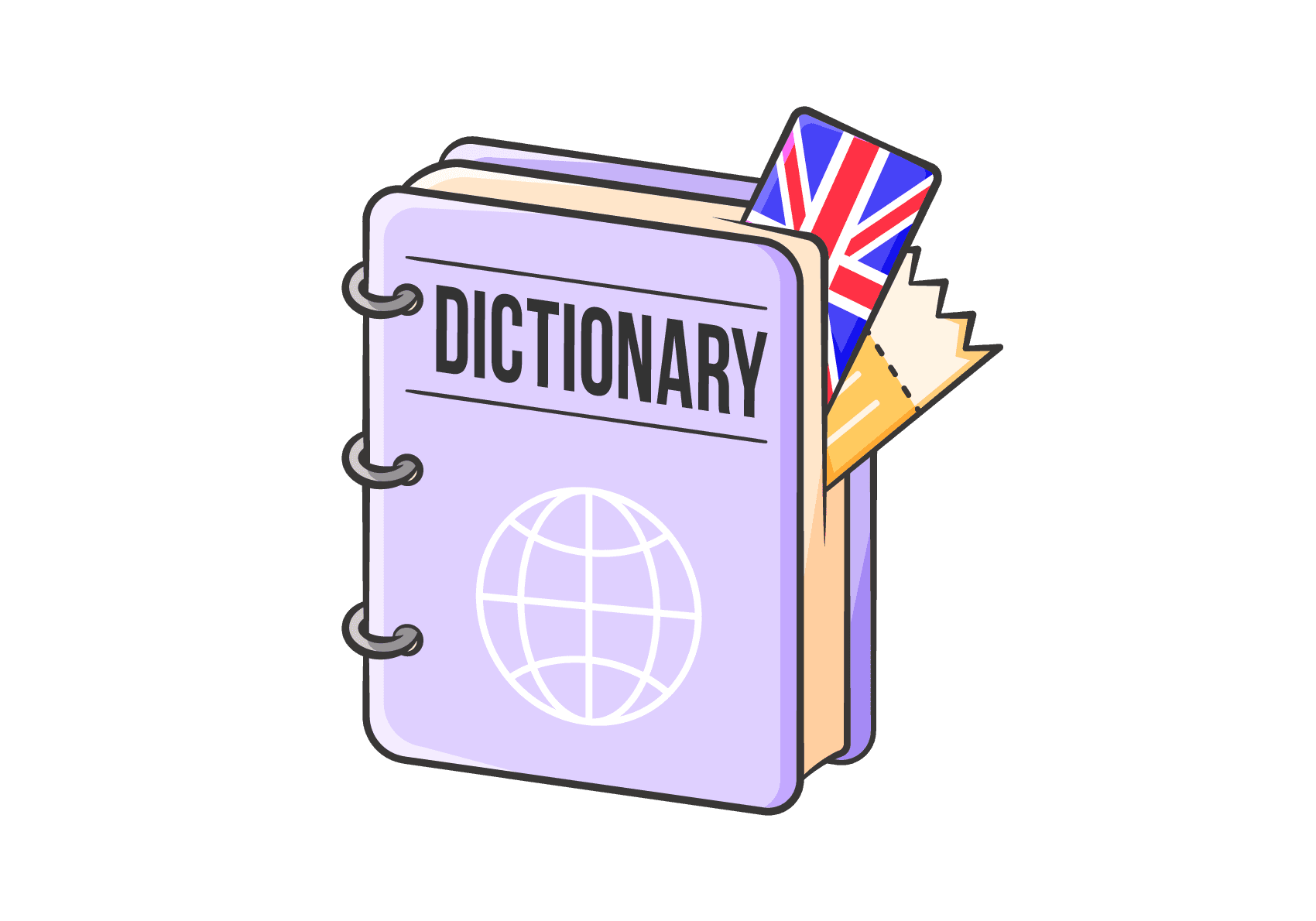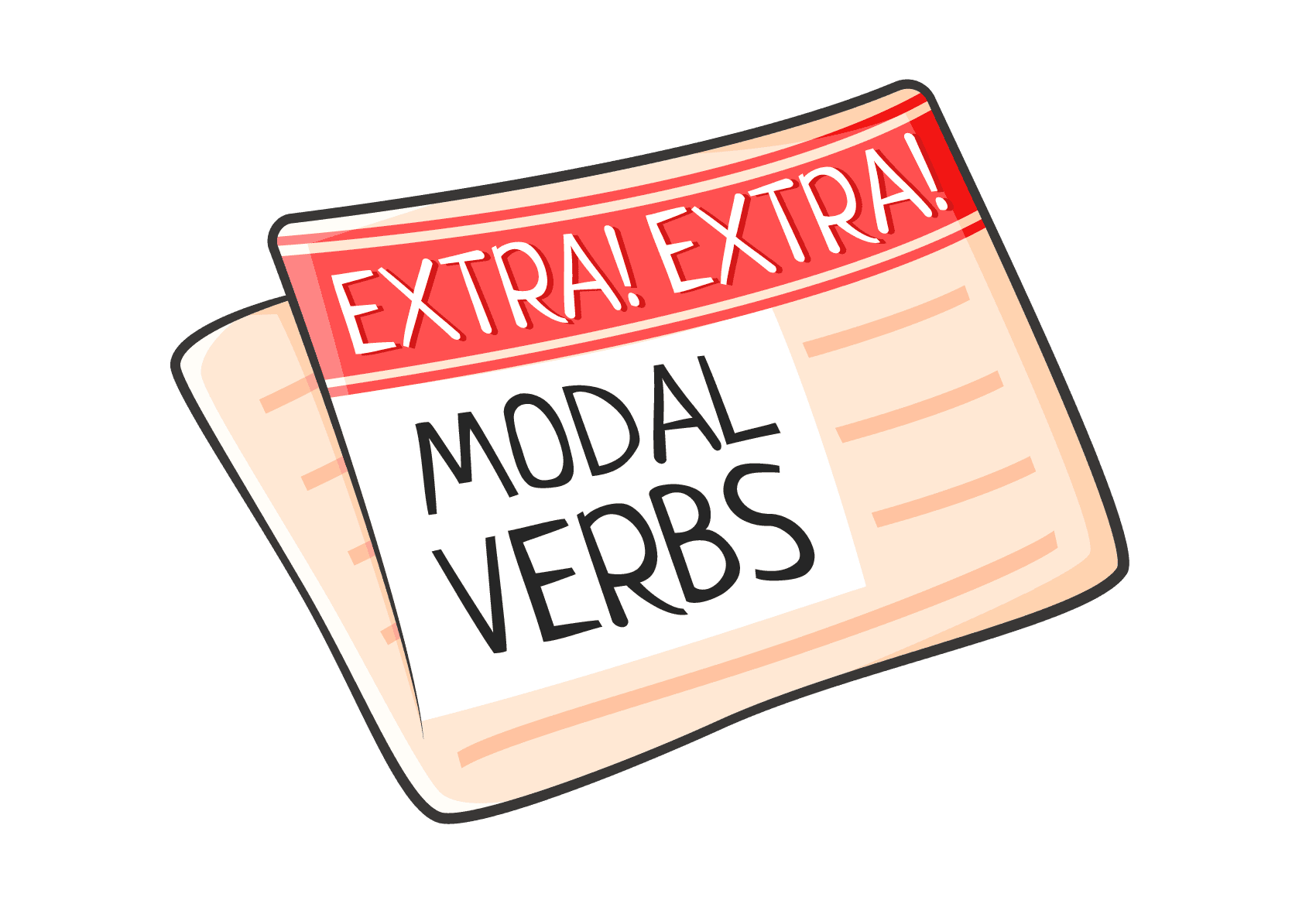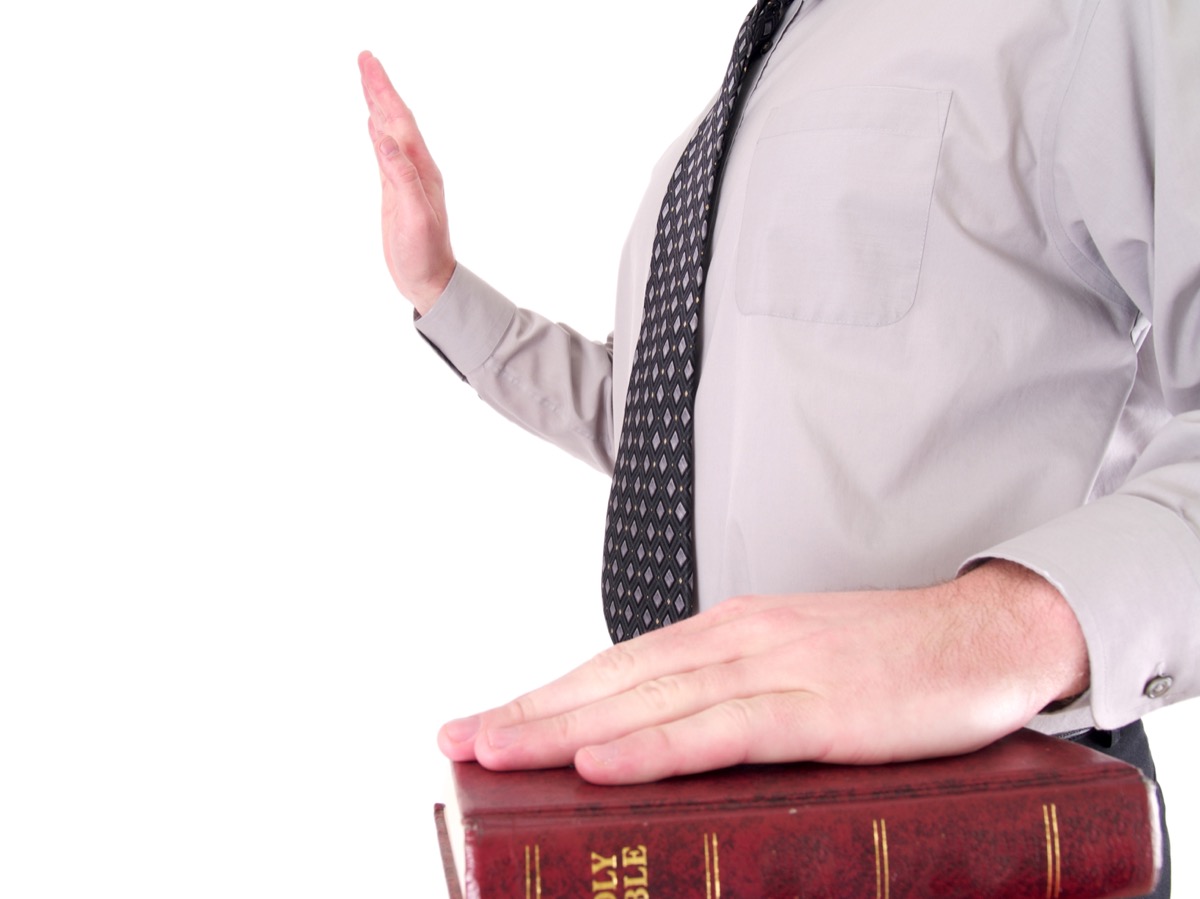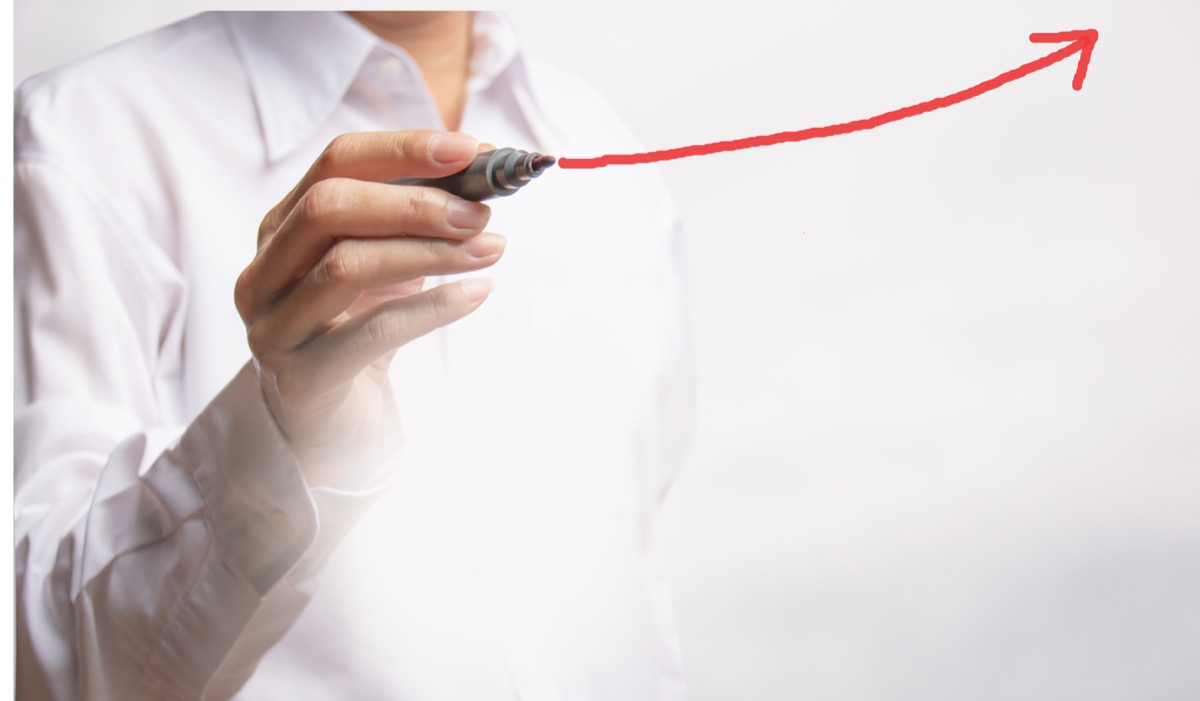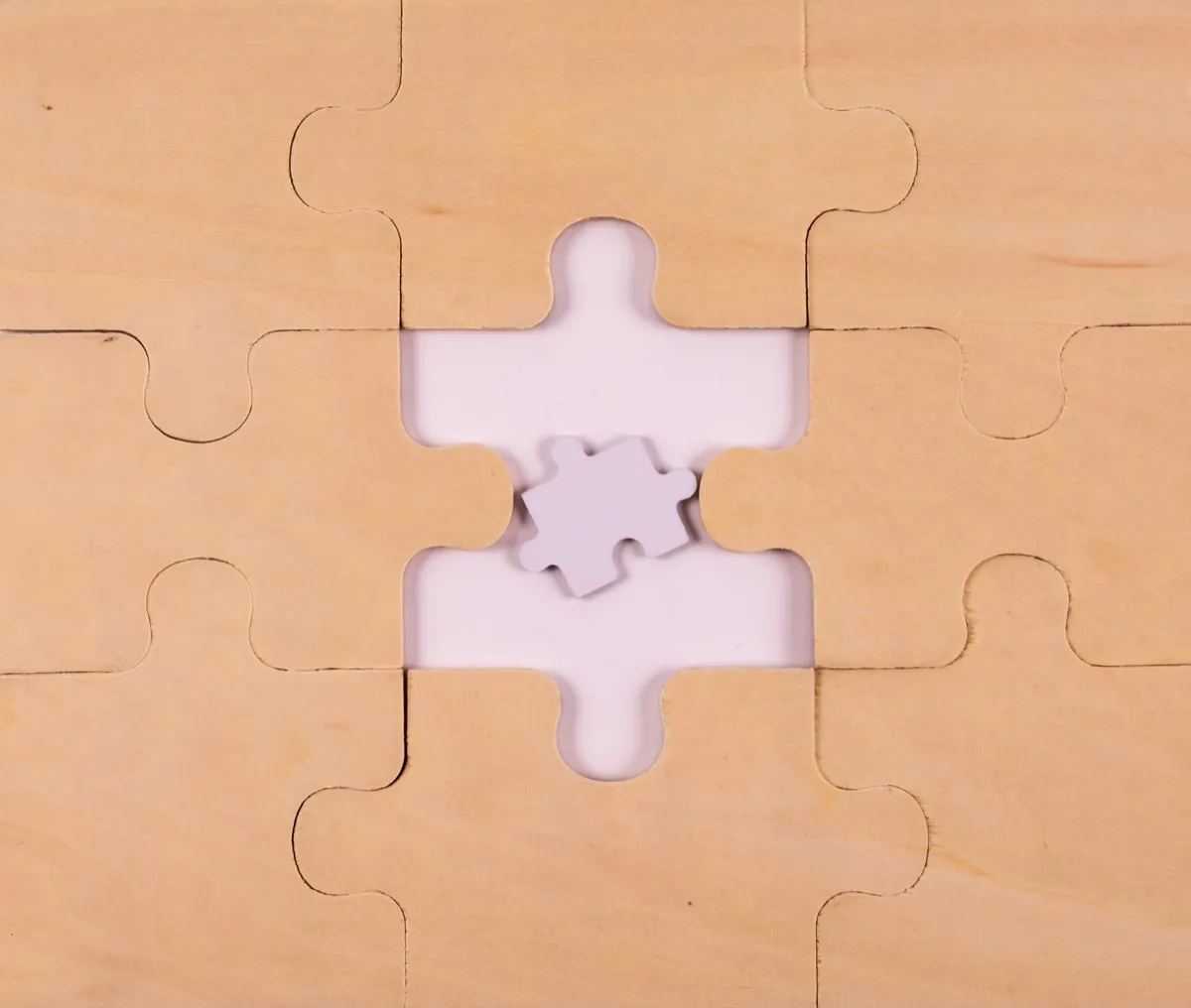Из статьи вы узнаете, какой объем словарного запаса у носителей языка и тех, кто учит английский, а также, какие слова стоит выучить в первую очередь.
Содержание:
- 1. Человек
- 2. Характеристики
- 3. Время и числа
- 4. Глаголы и образ жизни
- 5. Еда
- 6. Животные и природа
- 7. События и места
- 8. Дом
Словарный запас ― один из показателей уровня владения языком. Для того чтобы общаться на английском и понимать иностранцев, необязательно знать все 171 476 слова из Оксфордского словаря. Но тогда сколько?
На сайте testyourvocab.com вы можете пройти тест на определение словарного запаса с погрешностью в ±10%. Он состоит из двух этапов и занимает всего пять минут. Согласно его данным, взрослый носитель показывает результат от 20 000 до 35 000 слов, а те, кто изучает английский, набирают от 2 500 до 9 000 слов. Такие результаты включают в себя как активную, так и пассивную лексику.
Давайте узнаем, какие языковые возможности открывает тот или иной запас слов.
1 000 слов позволяют понять около 80% повседневных разговоров. Зная 1 000 слов, вы можете говорить на простые темы: завести знакомство, совершить покупки в путешествии и не растеряться в общественном транспорте.
3 000 слов позволяют понять уже около 95% большинства обычных текстов. Круг повседневных тем расширяется: вы можете более детально обсуждать бытовые и рабочие вопросы, понять общие идеи и концепции большинства статей, более свободно чувствовать себя за границей.
5 000 слов позволяют понять около 98% большинства обычных текстов. Ваш уровень достаточно высок, чтобы понять значение незнакомых слов из контекста. С таким запасом слов вы можете жить и работать в англоязычной среде. Однако вам может быть нелегко четко сформулировать свою мысль в рамках узкоспециализированных тем.
10 000 слов позволяют понять около 99% большинства текстов. Такого объема слов, как правило, достигают к уровню Proficiency. Это вершина изучения языка ― аналог словарного запаса выпускника колледжа. С таким количеством слов ваш уровень владения языком близок к уровню образованного носителя.
В процессе изучения языка большие цели эффективнее разбивать на несколько этапов, поэтому предлагаем начать с 1 000 английских слов. Мы взяли за основу 1 000 самых употребляемых английских слов, разбили их на категории и дополнили словами, важными для повседневного общения и путешествий.
Список слов включает восемь тем, каждая из которых разбита на подтемы:
- Person (человек)
- Characteristics (характеристики)
- Time and Numbers (время и числа)
- Verbs and Lifestyle (глаголы и образ жизни)
- Food (еда)
- Animals and Nature (животные и природа)
- Events and Places (события и места)
- Home (дом)
К словам даны:
- американский вариант: colleague (AmE: co-worker)
- форма множественного числа, если это слово-исключение: man (pl. men)
- формы неправильных глаголов: speak (spoke – spoken)
О том, какие приемы использовать для быстрого запоминания слов и как приучить себя их использовать в речи, вы можете узнать из нашего бесплатного вебинара «Как учить английские слова».
Человек
| Слово/Словосочетание | Перевод |
|---|---|
| a person (pl. people) | человек, персона |
| a man (pl. men) | мужчина |
| a woman (pl. women) | женщина |
| a child (pl. children) | ребенок |
| a boy | мальчик |
| a girl | девочка |
| a friend | друг |
| a neighbour (AmE: a neighbor) | сосед |
| a name | имя, название |
| a surname (AmE: a last name) | фамилия |
| a maiden name | девичья фамилия |
| an address | адрес |
| single | холостой/незамужняя |
| married | женатый/замужняя |
| age | возраст |
| old | старый |
| young | молодой |
| Местоимения | |
| I | я |
| you | ты, вы |
| we | мы |
| they | они |
| he | он |
| she | она |
| it | оно (о неодушевленном в единственном числе) |
| my/me | мой/мне |
| your/you | твой, ваш / тебе, вам |
| our/us | наш/нам |
| their/them | их/им |
| his/him | его/ему |
| her | ее/ей |
| its/it | его, ее / ему, ей (о неодушевленном) |
Используем первую форму для указания принадлежности: my name (мое имя), his friend (его друг). Используем вторую форму после действий: help me (помоги мне), tell us (расскажи нам).
I love his sense of humour, don’t you? ― Я люблю его чувство юмора, а ты?
Family ― семья
| Слово/Словосочетание | Перевод |
|---|---|
| parents | родители |
| a father | отец |
| a mother (AmE: a mom, BrE: a mum) | мать |
| a husband | муж |
| a wife | жена |
| a son | сын |
| a daughter | дочь |
| a brother | брат |
| a sister | сестра |
| a grandfather | дедушка |
| a grandmother | бабушка |
| an uncle | дядя |
| an aunt | тетя |
| a nephew | племянник |
| a niece | племянница |
| a cousin | двоюродный брат/сестра |
Body ― тело
| Слово/Словосочетание | Перевод |
|---|---|
| an arm | рука |
| a back | спина |
| a beard | борода |
| a bone | кость |
| buttocks | ягодицы |
| a cheek | щека |
| a chest | грудь |
| a chin | подбородок |
| an ear | ухо |
| an elbow | локоть |
| an eye | глаз |
| an eyebrow | бровь |
| a face | лицо |
| a finger | палец на руке |
| a foot (pl. feet) | ступня |
| a forehead | лоб |
| hair | волосы |
| a hand | кисть руки |
| a head | голова |
| a heart | сердце |
| a heel | пятка |
| a knee | колено |
| a leg | нога |
| lips | губы |
| a mouth | рот |
| a mustache | усы |
| a nail | ноготь |
| a neck | шея |
| a nose | нос |
| an organ | орган |
| a shoulder | плечо |
| skin | кожа |
| a spine | позвоночник |
| a stomach | живот, желудок |
| a throat | горло |
| a toe | палец на ноге |
| a tongue | язык |
| a tooth (pl. teeth) | зуб |
| Здоровье | |
| blood | кровь |
| a bruise | синяк |
| cough to cough |
кашель кашлять |
| dizziness | головокружение |
| fever | жар |
| flu | грипп |
| pain | боль |
| running nose | насморк |
| a spot | пятно, точка |
| a wound | рана |
| to sneeze | чихать |
| to hurt (hurt – hurt) | ранить, повреждать |
| fit | в хорошей форме |
| healthy | здоровый |
| swollen | опухший |
| sick | больной |
| fat | толстый, жирный |
| dead | мертвый |
При описании симптомов можно использовать глагол have для I, you, we, they и has для he, she, it.
You have a terrible wound. ― У тебя ужасная рана.
She has a fever. ― У нее жар.
Используйте следующие прилагательные для описания характера и поведения человека:
| Слово/Словосочетание | Перевод |
|---|---|
| Положительные | |
| positive | положительный |
| amazing | удивительный |
| beautiful | красивый |
| handsome | красивый (о мужчине) |
| brave | смелый |
| calm | спокойный |
| careful | осторожный |
| clever | умный |
| curious | любопытный |
| elegant | элегантный |
| energetic | энергичный |
| fair | справедливый, честный |
| fine | прекрасный, прекрасно |
| friendly | дружелюбный |
| good | хороший, добрый |
| happy | счастливый |
| hard-working | трудолюбивый |
| honest | честный |
| kind | добрый |
| lucky | везучий, счастливый |
| nice | милый, хороший, приятный |
| polite | вежливый |
| talented | талантливый |
| Нейтральные | |
| neutral | нейтральный |
| average | средний |
| boring | скучный |
| busy | занятой |
| clumsy | неуклюжий |
| dear | дорогой |
| different | другой, разный |
| difficult | трудный, тяжелый |
| easy | легкий, нетрудный |
| embarrassed | смущенный |
| famous | знаменитый |
| important | важный |
| impossible | невозможный |
| interesting | интересный |
| real | настоящий |
| rich | богатый |
| new | новый |
| modern | современный |
| Отрицательные | |
| negative | отрицательный |
| angry | сердитый |
| annoying | раздражающий |
| awful | ужасный, отвратительный |
| bad | плохой |
| crazy | безумный, сумасшедший |
| dangerous | опасный |
| jealous | ревнивый |
| lazy | ленивый |
| nervous | нервный |
| poor | бедный, плохой (язык, знания) |
| rude | грубый |
Job ― работа
| Слово/Словосочетание | Перевод |
|---|---|
| an accountant | бухгалтер |
| an actor/actress | актер/актриса |
| an artist | художник |
| a boss | босс |
| a businessman (pl. businessmen) | бизнесмен |
| a chief | руководитель, главный |
| a client | клиент |
| a colleague (AmE: a co-worker) | коллега |
| a doctor | врач |
| a driver | водитель |
| an engineer | инженер |
| a flight attendant | стюардесса, бортпроводник |
| a journalist | журналист |
| a lawyer | адвокат, юрист |
| a lifeguard | спасатель |
| a mechanic | механик |
| a musician | музыкант |
| a nanny | няня |
| a nurse | медсестра |
| a pilot | пилот |
| a plumber | сантехник |
| a policeman (pl. policemen) | полицейский |
| a pupil | школьник |
| a shop assistant | продавец |
| a student | студент |
| a teacher | учитель |
| a waiter/waitress | официант/официантка |
| a worker | рабочий |
| Описание рабочих задач | |
| an area | область, сфера, район |
| a case | дело |
| a circumstance | обстоятельство |
| a decision | решение |
| a duty | обязанность |
| a goal | цель |
| a list to list |
список перечислять |
| an opportunity | возможность |
| a problem | проблема |
| a permit | разрешение (на въезд/выезд/проживание) |
| a reason | причина |
| a result | результат |
| success | успех |
| a task | задача, задание |
Clothes ― одежда
| Слово/Словосочетание | Перевод |
|---|---|
| a belt | пояс, ремень |
| a blouse | блузка |
| a boot | сапог, ботинок |
| a cap | кепка |
| a cardigan | кардиган, кофта |
| a coat | пальто |
| a dress to dress |
платье одевать(ся) |
| a glove | перчатка |
| a hat | шляпа |
| a hood | капюшон |
| a jacket | жакет, пиджак, куртка |
| a jeans | джинсы |
| pyjamas (AmE: pajamas) | пижама |
| a scarf | шарф |
| a shirt | рубашка |
| shoes | обувь |
| shorts | шорты |
| a skirt | юбка |
| a sock | носок |
| a suit to suit |
костюм идти к лицу |
| a sweater | свитер |
| a tie | галстук |
| tights | колготы |
| trainers (AmE: sneakers) | кроссовки |
| trousers (AmE: pants) | штаны |
| a T-shirt | футболка |
| an underwear | нижнее белье |
| a bracelet | браслет |
| an earring | сережка |
| glasses | очки |
| a necklace | ожерелье |
| a purse | дамская сумка, кошелек |
| a wallet | бумажник |
Запишитесь на бесплатный пробный урок и начните учить английский с одним из наших опытных преподавателей.
Характеристики
Colour (AmE: color) ― цвет
| Слово/Словосочетание | Перевод |
|---|---|
| red | красный |
| orange | оранжевый |
| yellow | желтый |
| green | зеленый |
| blue | голубой, синий |
| purple | фиолетовый |
| pink | розовый |
| brown | коричневый |
| black | черный |
| grey | серый |
| white | белый |
| bright | яркий |
| colourful | цветной |
| dark | темный |
| light | светлый, легкий |
Properties ― свойства
Слова из следующей таблицы пригодятся для описания формы и характеристик предметов и явлений.
| Слово/Словосочетание | Перевод |
|---|---|
| a circle | круг |
| round | округлый |
| a square square |
квадрат квадратный |
| straight | прямой, ровный |
| a wheel | колесо |
| distance | расстояние |
| size | размер |
| speed | скорость |
| strength | сила |
| a lot of | много |
| many | много (с исчисляемыми существительными в отрицаниях и вопросах) |
| much | много (с неисчисляемыми существительными в отрицаниях и вопросах) |
| few | мало (с исчисляемыми существительными) |
| little | мало (с неисчисляемыми существительными) |
| less | меньше, менее |
| more | больше, более |
| some | несколько, некоторое количество (в утверждениях) |
| any | несколько, некоторое количество (в отрицаниях и вопросах), какой-нибудь |
| a pair | пара (вещей, объектов) |
| a part | часть |
| a piece | кусок, часть |
| big | большой |
| far | далекий |
| fast | быстрый, быстро |
| hard | твердый, трудный, жесткий, усердно |
| heavy | тяжелый |
| high | высокий (об объектах) |
| large | большой, просторный |
| long | длинный, долгий |
| loud | громкий |
| low | низкий, низко |
| narrow | узкий |
| near | близкий |
| noisy | шумный |
| powerful | мощный |
| quick | быстрый |
| quiet | тихий |
| short | низкий, короткий |
Слова из следующей таблицы подойдут для описания особенностей процессов и характеристик.
| Слово/Словосочетание | Перевод |
|---|---|
| again | снова |
| all | все, весь |
| almost | почти |
| each | каждый (по отдельности) |
| enough | достаточно |
| every | каждый |
| only | только |
| than | чем (в сравнениях) |
| together | вместе |
| too | тоже, слишком |
| very | очень |
Время и числа
Number ― число, номер
| Слово/Словосочетание | Перевод |
|---|---|
| zero | ноль |
| one | один |
| two | два |
| three | три |
| four | четыре |
| five | пять |
| six | шесть |
| seven | семь |
| eight | восемь |
| nine | девять |
| ten | десять |
| eleven | одиннадцать |
| twelve | двенадцать |
| thirteen | тринадцать |
| fourteen | четырнадцать |
| fifteen | пятнадцать |
| sixteen | шестнадцать |
| seventeen | семнадцать |
| eighteen | восемнадцать |
| nineteen | девятнадцать |
| twenty | двадцать |
| thirty | тридцать |
| forty | сорок |
| fifty | пятьдесят |
| sixty | шестьдесят |
| seventy | семьдесят |
| eighty | восемьдесят |
| ninety | девяносто |
| hundred | сто |
| thousand | тысяча |
| million | миллион |
Order ― порядок
| Слово/Словосочетание | Перевод |
|---|---|
| first | первый |
| second | второй |
| third | третий |
| fourth | четвертый |
| fifth | пятый |
Обратите внимание! С порядковыми числительными используем артикль the.
This is the first victory in his career. ― Это первая победа в его карьере.
Time ― время
| Слово/Словосочетание | Перевод |
|---|---|
| Время года | |
| a season | сезон, время года |
| winter | зима |
| spring | весна |
| summer | лето |
| autumn (AmE: fall) | осень |
| Месяц | |
| a month | месяц |
| January | январь |
| February | февраль |
| March | март |
| April | апрель |
| May | май |
| June | июнь |
| July | июль |
| August | август |
| September | сентябрь |
| October | октябрь |
| November | ноябрь |
| December | декабрь |
| День | |
| a day | день |
| Monday | понедельник |
| Tuesday | вторник |
| Wednesday | среда |
| Thursday | четверг |
| Friday | пятница |
| Saturday | суббота |
| Sunday | воскресенье |
| yesterday | вчера |
| today | сегодня |
| now | сейчас, теперь |
| morning | утро |
| afternoon | день (после полудня) |
| evening | вечер |
| night | ночь |
| tonight | сегодня вечером, ночью |
| midnight | полночь |
| tomorrow | завтра |
| Время | |
| a second | секунда |
| a minute | минута |
| an hour | час |
| a week | неделя |
| a year | год |
| a century | век |
Для описания временных промежутков используйте следующую лексику.
| Слово/Словосочетание | Перевод |
|---|---|
| ago | назад (например, 2 дня назад) |
| early | ранний, рано |
| last | последний, прошлый |
| late | поздний, поздно, опоздавший |
| next | следующий (год, неделя) |
| after | после |
| before | до |
| during | во время |
| for | для, в течение (времени) |
| since | с (определенного времени) |
| then | затем, потом, тогда |
| always | всегда |
| never | никогда |
| often | часто |
| sometimes | иногда |
| soon | скоро |
| usually | обычно |
| already | уже |
| just | только что, просто |
| yet | еще не |
| probably | вероятно |
| really | действительно |
| will | для образования будущего времени |
Money ― деньги
| Слово/Словосочетание | Перевод |
|---|---|
| a bill | счет |
| cash | наличка |
| discount | скидка |
| price | цена |
| tip | чаевые |
| cheap | дешевый |
| expensive | дорогой (о цене) |
| free | бесплатный, свободный |
Глаголы и образ жизни
Hobby ― хобби, увлечение
| Слово/Словосочетание | Перевод |
|---|---|
| art | искусство |
| a film (AmE: a movie) | фильм |
| literature | литература |
| music | музыка |
| a photo | фото |
| a picture | картина, фотография |
| a song | песня |
| a story | история, рассказ |
| to act | играть (на сцене) вести себя |
| to build (built – built) | строить |
| to create | создавать |
| a dance to dance |
танец танцевать |
| to do (did – done) | делать |
| to draw (drew – drawn) | рисовать |
| to listen | слушать |
| to make (made – made) | делать, изготавливать |
| a play to play |
спектакль играть |
| to read (read – read) | читать |
| to sing (sang – sung) | петь |
| to swim (swam – swum) | плавать |
| to teach (taught – taught) | учить, преподавать |
| to write (wrote – written) | писать |
Обратите внимание! Мы используем вторую форму глагола для прошедшего времени, а третью форму можем в некоторых случаях употреблять как характеристику. Например: he drew (он рисовал), a drawn rose (нарисованная роза).
Travel ― путешествие
| Слово/Словосочетание | Перевод |
|---|---|
| a backpack | рюкзак |
| a bag | сумка |
| a card | открытка, карточка (банковская) |
| a delay to delay |
задержка задерживать |
| a destination | пункт назначения |
| a luggage (AmE: a baggage) | багаж |
| a map | карта |
| a suitcase | чемодан |
| a ticket | билет |
| a bicycle | велосипед |
| a bus | автобус |
| a car | автомобиль |
| a plane | самолет |
| a ship | корабль |
| a taxi (AmE: a cab) | такси |
| a train | поезд |
| a tram (AmE: a trolley) | трамвай |
| insurance | страховка |
Часто с общественным транспортом употребляется глагол to take: to take a bus (сесть на автобус), to take a train (поехать на поезде).
Хотите уверенно себя чувствовать, общаясь с иностранцами? Записывайтесь на курс «Английский для путешествий».
Movement ― движение
| Слово/Словосочетание | Перевод |
|---|---|
| to arrive | прибывать |
| to bring (brought – brought) | приносить |
| to catch (caught – caught) | ловить |
| to come (came – come) | приходить |
| to drive (drove – driven) | водить (транспорт) |
| to drop | ронять |
| to fall (fell – fallen) | падать |
| to finish | заканчивать |
| to fly (flew – flown) | летать |
| to go (went – gone) | идти, уезжать |
| to grow (grew – grown) | расти |
| to happen | случаться |
| to jump | прыгать |
| to land | приземляться |
| to leave (left – left) | покидать, оставлять, уходить |
| to move | двигаться |
| to pass | проходить |
| to pull | тянуть |
| to push | толкать |
| to put (put – put) | положить, класть |
| to ride (rode – ridden) | ездить верхом (на лошади, велосипеде) |
| to run (ran – run) | бежать |
| to stand (stood – stood) | стоять |
| to start | начинать |
| to stay | оставаться |
| to stop | останавливаться |
| to take (took – taken) | брать |
| to throw (threw – thrown) | бросать |
| to travel | путешествовать |
| to turn | поворачивать |
| to walk | идти пешком, гулять |
Life ― жизнь
| Слово/Словосочетание | Перевод |
|---|---|
| to add | добавлять |
| to be (was/were – been) | быть |
| to become (became – become) | становиться |
| to begin (began – begun) | начинать |
| to break (broke – broken) | ломать |
| to buy (bought – bought) | покупать |
| to change | менять |
| to check | проверять |
| to choose (chose – chosen) | выбирать |
| to close | закрывать |
| to continue | продолжать |
| to control | контролировать |
| to cook | готовить |
| to cost (cost – cost) | стоить |
| to cut (cut – cut) | резать |
| to develop | развивать |
| to drink (drank – drunk) | пить |
| to eat (ate – eaten) | есть, кушать |
| to feed (fed – fed) | кормить |
| to find (found – found) | находить |
| to get (got – got) | получать, добывать |
| to give (gave – given) | давать |
| to have (had – had) | иметь, обладать |
| to hold (held – held) | держать |
| to keep (kept – kept) | хранить, продолжать |
| to kill | убивать |
| to live | жить |
| to look | выглядеть |
| to open | открывать |
| to order | заказывать |
| to pay | платить |
| to plan | планировать |
| to put on | надевать |
| to rest | отдыхать |
| to ring (rang – rung) | звенеть, звонить |
| to risk | рисковать |
| to save | спасать, сохранять |
| to sell (sold – sold) | продавать |
| to send (sent – sent) | отправлять |
| to shave | бриться |
| to show (showed – shown) | показывать |
| to sign | подписывать |
| to sit (sat – sat) | сидеть |
| to sleep (slept – slept) | спать |
| to smoke | курить |
| to spend (spent – spent) | проводить (время), тратить |
| to take off | снимать (одежду) взлетать (о самолете) |
| to try | пытаться |
| to use | использовать |
| to visit | посещать |
| to wait | ждать |
| to wake up (woke – woken) | просыпаться |
| to wash | мыть, стирать |
| to watch | смотреть, наблюдать |
| to wear (wore – worn) | носить (одежду) |
| to work | работать |
Interaction ― взаимодействие, общение
| Слово/Словосочетание | Перевод |
|---|---|
| yes | да |
| no | нет |
| not | не |
| hi | привет |
| hello | здравствуйте |
| sorry | извините (просим прощения) |
| excuse me | извините (просим разрешение) |
| please | пожалуйста, прошу |
| thank you | спасибо |
| you are welcome | не за что |
| bye | пока |
| maybe | может быть |
| would like to | хотелось бы (сделать что-то) |
| to agree | соглашаться |
| to answer | отвечать |
| to argue | спорить, ругаться |
| to ask | спрашивать |
| to call | звонить, звать, называть |
| to complain | жаловаться |
| to describe | описывать |
| to discuss | обсуждать |
| to disturb | беспокоить |
| to explain | объяснять |
| to fight (fought – fought) | драться |
| to forgive (forgave – forgiven) | прощать |
| to help | помогать |
| to hit (hit – hit) | ударять |
| to join | присоединяться |
| to joke | шутить |
| to lie | обманывать, врать |
| to meet (met – met) | встречать |
| to offer | предлагать |
| to protect | защищать |
| to say (said – said) | сказать |
| to share | делиться |
| to speak (spoke – spoken) | разговаривать |
| to support | поддерживать |
| to surprise | удивлять |
| to talk | разговаривать |
| to tell (told – told) | рассказывать |
Следующие союзы и вопросительные слова ― отличные помощники, если нужно узнать или объяснить причину, результат, ситуацию в целом.
| Слово/Словосочетание | Перевод |
|---|---|
| also | также |
| and | и |
| because | потому что |
| because of | из-за |
| but | но |
| if | если |
| or | или |
| so | итак, таким образом, поэтому |
| what | что, какой |
| who | кто |
| when | когда |
| where | где, куда |
| how | как, каким образом |
| why | почему, зачем |
Emotions ― эмоции
| Слово/Словосочетание | Перевод |
|---|---|
| fear | страх |
| fun | веселье |
| passion | страсть |
| peace | мир |
| pleasure | удовольствие |
| to cry | плакать, кричать |
| to enjoy | наслаждаться |
| to laugh | смеяться |
| to like | нравиться |
| to love | любить |
| to miss | скучать |
| to need | нуждаться |
| to smile | улыбаться |
| to want | хотеть |
| to worry | беспокоиться |
Senses ― чувства
| Слово/Словосочетание | Перевод |
|---|---|
| to feel (felt – felt) | чувствовать |
| to hear (heard – heard) | слышать |
| to see (saw – seen) | видеть |
| to smell (smelt – smelt) | нюхать, иметь запах |
| to taste | пробовать, иметь вкус |
Thinking ― мышление
| Слово/Словосочетание | Перевод |
|---|---|
| behavior | поведение |
| choice | выбор |
| experience | опыт |
| habit | привычка |
| language | язык |
| meaning | значение, смысл |
| memory | память, воспоминание |
| soul | душа |
| to believe | верить |
| to compare | сравнивать |
| to count | считать |
| to decide | принимать решение |
| to dream (dreamt – dreamt) | мечтать, видеть сон |
| to expect | ожидать |
| to forget (forgot – forgotten) | забывать |
| to hope | надеяться |
| to know (knew – known) | знать |
| to learn (learnt – learnt) | учить, изучать |
| to let (let – let) | позволять (сделать что-то) |
| to remember | помнить |
| to solve | решать (проблему, задачу) |
| to think (thought – thought) | думать, считать |
Study ― учеба
| Слово/Словосочетание | Перевод |
|---|---|
| a book | книга |
| a calendar | календарь |
| a notebook | тетрадь |
| a dictionary | словарь |
| an exercise | упражнение |
| information | информация |
| knowledge | знание |
| a lesson | урок |
| a letter | буква, письмо |
| a mistake | ошибка |
| a note | записка, запись |
| a page | страница |
| paper | бумага |
| a pen | ручка |
| a pencil | карандаш |
| science | наука |
| scissors | ножницы |
| a test | тест |
| a word | слово |
Modal verbs ― модальные глаголы
| Слово/Словосочетание | Перевод |
|---|---|
| can | уметь, мочь (сделать что-то) |
| have to | быть вынужденным (сделать что-то) |
| may | иметь разрешение (сделать что-то) |
| must | быть должным, обязанным (сделать что-то) |
| should | должен, следует (сделать что-то) |
Еда
Давайте ознакомимся с самыми популярными английскими словами, которые связаны с приготовлением и приемом пищи.
| Слово/Словосочетание | Перевод |
|---|---|
| Приготовление | |
| full | сытый, полный |
| hungry | голодный |
| delivery | доставка |
| baked | запеченный |
| boiled | вареный |
| fried | жареный |
| ready | готовый |
| Вкус | |
| bitter | горький |
| delicious | очень вкусный |
| salty | соленый |
| sour | кислый |
| spicy | острый |
| sweet | сладкий |
| Приемы пищи | |
| a meal | прием пищи |
| breakfast | завтрак |
| lunch | обед |
| dinner | ужин |
| snack | перекус |
| Блюда | |
| a dish | блюдо |
| noodles | лапша |
| porridge | каша |
| salad | салат |
| a sandwich | бутерброд |
| soup | суп |
Products ― продукты
| Слово/Словосочетание | Перевод |
|---|---|
| Фрукты и овощи | |
| fruit | фрукты |
| vegetables | овощи |
| an apple | яблоко |
| an apricot | абрикос |
| a banana | банан |
| a berry | ягода |
| a cherry | вишня |
| a cucumber | огурец |
| grapes | виноград |
| a lemon | лимон |
| a mandarin | мандарин |
| a mango | манго |
| a melon | дыня |
| a peach | персик |
| a pear | груша |
| a pineapple | ананас |
| a plum | слива |
| a pumpkin | тыква |
| a raspberry | малина |
| a strawberry | клубника |
| a tomato | помидор |
| a watermelon | арбуз |
| an aubergine (AmE: an eggplant) | баклажан |
| beans | бобы, фасоль |
| a beetroot | свекла |
| a bell pepper | болгарский перец |
| a cabbage | капуста |
| a carrot | морковь |
| corn | кукуруза |
| a courgette (AmE: a zucchini) | кабачок |
| garlic | чеснок |
| an onion | лук |
| a mushroom | гриб |
| potato | картофель |
| Молочные продукты | |
| dairy | молочные продукты |
| butter | масло |
| cheese | сыр |
| cream | крем, сливки |
| curd | творог |
| milk | молоко |
| yogurt | йогурт |
| Мясо | |
| a cutlet | котлета |
| meat | мясо |
| beef | говядина |
| chicken | курица, цыпленок |
| fish | рыба |
| duck | утка |
| ham | ветчина |
| lamb | баранина, ягненок |
| pork | свинина |
| sausage | колбаса, сосиска |
| seafood | морепродукты |
| Десерты | |
| dessert | десерт |
| biscuit (AmE: cookie) | печенье |
| a bun | булочка |
| a cake | торт |
| chocolate | шоколад |
| honey | мед |
| ice cream | мороженое |
| jam | варенье |
| a pie | пирог |
| Другие продукты | |
| bread | хлеб |
| an egg | яйцо |
| flour | мука |
| a nut | орех |
| oatmeal | овсянка |
| oil | растительное масло |
| pepper | перец |
| rice | рис |
| salt | соль |
| sauce | соус |
| spices | специи |
| sugar | сахар |
| Напитки | |
| a drink | напиток |
| coffee | кофе |
| juice | сок |
| soda | газировка |
| tea | чай |
| water | вода |
| wine | вино |
Dishes ― посуда
| Слово/Словосочетание | Перевод |
|---|---|
| a bottle | бутылка |
| a glass | стакан, стекло |
| a cup | чашка |
| a kettle | чайник |
| a bowl | глубокая тарелка, миска |
| a plate | тарелка |
| a fork | вилка |
| a knife | нож |
| a spoon | ложка |
| a frying pan | сковородка |
| a pan | кастрюля |
| a napkin | салфетка |
Хотите говорить свободно на английском и понимать своего собеседника? Тогда записывайтесь на интенсивный разговорный курс.
Животные и природа
Растительный и животный мир планеты невероятно разнообразен. Однако в таблице вы встретите лишь наиболее популярных представителей флоры и фауны.
| Слово/Словосочетание | Перевод |
|---|---|
| Животные | |
| an animal | животное |
| an ant | муравей |
| a bear | медведь |
| a bee | пчела |
| a bird | птица |
| a cat | кот, кошка |
| a cockroach | таракан |
| a cow | корова |
| a dog | собака |
| a elephant | слон |
| a fox | лиса |
| a frog | лягушка |
| a giraffe | жираф |
| a goose (pl. geese) | гусь |
| a horse | лошадь |
| an insect | насекомое |
| a lion a lioness |
лев львица |
| a monkey | обезьяна |
| a mouse (pl. mice) | мышь |
| a pig | свинья |
| a rabbit | заяц |
| a rat | крыса |
| a snake | змея |
| a spider | паук |
| a squirrel | белка |
| Растения | |
| a plant | растение |
| a bush | куст |
| a flower | цветок |
| grass | трава |
| a leaf | лист |
| a tree | дерево |
Поговорить о природных красотах и погодных условиях вы сможете с помощью следующих слов:
| Слово/Словосочетание | Перевод |
|---|---|
| Природа | |
| nature | природа |
| a beach | пляж |
| a coast | морское побережье |
| a field | поле |
| fire | огонь, пожар |
| a forest | лес |
| an island | остров |
| a lake | озеро |
| a mountain | гора |
| the ocean | океан |
| a river | река |
| sand | песок |
| the sea | море |
| a stone | камень |
| a world | мир (планета) |
| Погода | |
| air | воздух |
| degree | градус |
| moon | луна |
| sky | небо |
| sun | солнце |
| temperature | температура |
| weather | погода |
| clear | ясный |
| cloudy | облачный |
| cold | холодный, холодно |
| cool | прохладный, прохладно |
| foggy | туманный |
| hot | горячий, жаркий, жарко |
| rainy | дождливый, дождливо |
| snowy | снежный, снежно |
| warm | тепло, теплый |
| windy | ветрено |
Употребляйте конструкцию it is, когда говорите о погоде: it is cloudy (облачно), it is cold (холодно).
События и места
В следующих таблицах собраны слова, связанные с популярными праздниками, городскими мероприятиями и семейными событиями.
Events ― события, мероприятия
| Слово/Словосочетание | Перевод |
|---|---|
| a birthday | день рождения |
| Christmas | Рождество |
| death | смерть |
| Easter | Пасха |
| a game | игра |
| a holiday (AmE: a vacation) | праздник, каникулы, отпуск |
| a meeting | встреча, собрание |
| New Year’s Eve | канун Нового года |
| a party | вечеринка |
| a wedding | свадьба |
| a balloon | воздушный шар |
| a box | коробка, боксировать |
| a guest | гость |
| an invitation | приглашение |
| a present | подарок |
| a toy | игрушка |
Place ― место
| Слово/Словосочетание | Перевод |
|---|---|
| a country | страна |
| customs | таможня |
| a city | город |
| a town | небольшой город, городок |
| a village | деревня |
| an airport | аэропорт |
| a bank | банк |
| a bridge | мост |
| a building | здание |
| a café | кафе |
| a centre (AmE: a center) | центр (города) |
| a church | церковь |
| a cinema | кинотеатр |
| a company | компания, фирма |
| entrance | вход |
| exit | выход |
| a factory | фабрика, завод |
| garbage | мусор |
| a hospital | больница |
| a hotel | гостиница |
| an intersection | перекресток, точка пересечения |
| a market | рынок |
| an office | офис |
| a park | парк |
| a pavement (AmE: a sidewalk) | тротуар |
| a pharmacy (AmE: a drug store) | аптека |
| a police | полиция |
| a post office | почта |
| a restaurant | ресторан |
| a road | дорога |
| a school | школа |
| a shop (AmE: a store) | магазин |
| a station | станция, вокзал |
| a street | улица |
| a theatre (AmE: a theater) | театр |
| a university | университет |
| clean | чистый |
| comfortable | удобный, уютный |
| crowded | людный, переполненный |
| dirty | грязный |
| main | основной, главный |
| this/these | этот/эти |
| that/those | тот/те |
| left | левый, налево |
| right | правый, направо |
| here | тут, сюда |
| there | там, туда |
| down | вниз |
| up | вверх |
| about | о, около, примерно |
| above | над |
| against | против |
| behind | сзади, позади |
| between | между |
| from | из |
| in | в |
| in front of | впереди |
| on | на |
| through | через, сквозь |
| to | по направлению к |
| under | под |
| with | с |
| without | без |
Используйте конструкции there is и there are, когда говорите о местоположении людей или объектов: there is a church (здесь есть церковь).
Дом
Home ― место проживания
| Слово/Словосочетание | Перевод |
|---|---|
| a flat (AmE: an apartment) | квартира |
| a house | дом (помещение) |
| a balcony | балкон |
| a bathroom | ванная |
| a bedroom | спальня |
| a curtain | штора |
| a door | дверь |
| a fence | забор |
| a floor | пол, этаж |
| a hall | коридор |
| a kitchen | кухня |
| a living room | гостиная, зал |
| a roof | крыша |
| a room | комната |
| a shower | душ |
| a sink | раковина |
| a socket | розетка |
| stairs | лестница, ступеньки |
| a toilet | туалет |
| a wall | стена |
| a window | окно |
| a yard | двор |
| Мебель | |
| furniture | мебель |
| an armchair | кресло |
| a bed | кровать |
| a chair | стул |
| a shelf | полка |
| a sofa | диван |
| a table | стол |
| a wardrobe (AmE: a closet) | шкаф |
Device ― прибор, устройство
| Слово/Словосочетание | Перевод |
|---|---|
| a battery | батарейка, аккумулятор |
| a camera | камера |
| a computer | компьютер |
| a fridge | холодильник |
| an iron | утюг |
| a keyboard | клавиатура |
| a lamp | лампа |
| a laptop | ноутбук |
| a microwave | микроволновка |
| an oven | печь, духовка |
| a phone | телефон |
| a radio | радио |
| a cooker (AmE: a stove) | кухонная плита |
| a TV | телевизор |
| a wire | провод |
Thing ― вещь
| Слово/Словосочетание | Перевод |
|---|---|
| a ball | мяч, шар |
| a blanket | одеяло |
| a carpet | ковер |
| a key | ключ, клавиша |
| a magazine | журнал |
| почта | |
| a mirror | зеркало |
| a newspaper | газета |
| a package | упаковка, посылка |
| a pillow | подушка |
| a sheet | простыня |
| a soap | мыло |
| a towel | полотенце |
| a vase | ваза |
Если вы хотите чувствовать себя максимально подготовленными к общению на английском, мы предлагаем вам дополнительно ознакомиться с нашими статьями-разговорниками, посвященными таким темам: пребывание в отеле, городской транспорт, прогулка по городу, посещение ресторана и кафе.
Теперь вы знаете 1 000 самых употребляемых слов в английском языке. Однако недостаточно просто знать слова, ведь их важно уметь правильно связывать в предложения. Здесь вам не обойтись без знания правил грамматики ― для этого читайте грамматические статьи в нашем блоге.
Скачать список слов по теме «1 000 самых важных слов английского языка» (*.pdf, 609 Кб)
© 2023 englex.ru, копирование материалов возможно только при указании прямой активной ссылки на первоисточник.
If you know just 100 words in English, you will know more than 50% of the English words that you see and hear. That’s why in today’s video, I am going to show you the 100 most common words in English.
For each word, I will show you the pronunciation, the meaning and an example sentence. When I pronounce each word, I want you to repeat after me so you can practise your English speaking skills.
Get out your notebooks because today you are going to learn a lot of useful vocabulary. Are you ready? Let’s look at word number one.
Word #1
Number one. The. The word ‘the’ is normally used before a noun to talk about people or things that are known to the speaker and the listener. We use ‘the’ to talk about specific things. For example, ‘Give me the pen.’ ‘The pen’ means that you know which pen and I know which pen – it’s a specific pen.
Word #2
Number two. Of. ‘Of’ has many uses but the main use is to talk about possession, when we want to show the owner of something. For example, ‘He is a friend of mine.’
Word #3
Number three. And. ‘And’ is used when we want to join two or more phrases or words together. For example, ‘I like apples and oranges.’
Word #4
Number four. A. We use the word ‘a’ before a noun which we have not talked about before, when we’re talking about something that is not specific. For example, ‘I bought a new car.’ ‘A new car’ means you don’t know which car. It’s not specific.
Word #5
Number five. To. The word ‘to’ has many uses. One of the main uses of ‘to’ is when we’re talking about movement. For example, ‘He went to the train station.’ The second main use of ‘to’ is to show that a verb is the infinitive. For example, ‘I promise to eat that.’
Word #6
Number six. In. ‘In’ means inside a container, a place or an area. For example, ‘The cat is in the house.’
Word #7
Number seven. Is. The word ‘is’ is the he, she and it form of the verb ‘to be’ which we will talk more about at word number twenty-two. The word ‘is’ normally talks about the present and we can use it for many things such as talking about things that are normally true, characteristics and peoples’ jobs. For example, ‘There is your room.’
Word #8
Number eight. You. The word ‘you’ is used to talk about the person who is being spoken to or written to. You. You. For example, ‘Are you ready?’
Word #9
Number nine. That. The word ‘that’ is used to talk about a person or a thing that the speaker cannot touch. We use the word ‘that’ to talk about one thing. For example, ‘I like that pen.’
Word #10
Number ten. It. We use the word ‘it’ to talk about a subject, an object or a thing that has already been talked about. For example, ‘The company lost money so it had to close down.’
Word #11
Number eleven. He. We use the word ‘he’ to talk about the subject of a sentence that is a man, a boy or a male thing. For example, ‘Fred is very nice but he is not very smart.’
Word #12
Number twelve. Was. ‘Was’ is a past simple form of the verb ‘to be’ which we will talk more about at number twenty-two. This means we normally use ‘was’ when we’re talking about the past. ‘Was’ is normally used with singular subjects. For example, ‘The man was at the bar.’
Word #13
Number thirteen. For. The word ‘for’ has many uses. One of the main uses of ‘for’ is to show when something is intended to be given to something or someone. For example, ‘The flowers are for you.’ The second main use of ‘for’ is to talk about a purpose or reason for something. For example, ‘Come to my house for dinner tonight.’
Word #14
Number fourteen. On. The word ‘on’ is used to show that one thing is above another thing and those two things are touching. For example, ‘The laptop is on the table.’
Word #15
Number fifteen. Are. The word ‘are’ is the we, you and they form of the verb ‘to be’. The word ‘are’ is normally used to talk about the present tense. For example, ‘Where are your friends?’
Word #16
Number sixteen. As. The word ‘as’ has many uses. One of the main uses of ‘as’ is to talk about the purpose or to describe something or someone. For example, ‘He works as a doctor.’ The second main use of ‘as’ is when we’re talking about comparisons or comparing things. For example, ‘She is not as tall as her mother.’
Word #17
Number seventeen. With. ‘With’ is used to show that people or things are together or they are doing something together. For example, ‘Did you go with him?’
Word #18
Number eighteen. His. ‘His’ shows that a boy, a man or a male thing owns something. For example, ‘Did you see his new car?’
Word #19
Number nineteen. They. We use the word ‘they’ as the subject of a sentence to talk about two or more people or things. For example, ‘They live in America.’
Word #20
Number twenty. I. ‘I’ is used to talk about the person who is speaking or writing. For example, ‘I work here.’
Word #21
Number twenty-one. At. The word ‘at’ is used to describe an exact position or place. For example ‘My dog is at the park.’
Word #22
Number twenty-two. Be. The word ‘be’ has many many many uses. But the main uses of ‘be’ are to say something about someone or something and to show that something exists. The word ‘be’ has eight forms. Be. Is. Am. Are. Was. Were. Being and been. For example, ‘He wants to be a pilot when he finishes university.’
Word #23
Number twenty-three. This. The word ‘this’ is normally used to talk about something or someone that the speaker can touch. Something or someone that is close to the speaker. We use the word ‘this’ to talk about one thing. For example, ‘Do you like this lamp?’
Word #24
Number twenty-four. Had. The word ‘have’ means to possess or to own. For example, ‘I have a phone.’ We can also use ‘have’ when using perfect tenses in English. For example, ‘Have you been to China?’ In this sentence, ‘have’ does not mean to own.
Word #25
Number twenty-five. From. The word ‘from’ means where something or someone started. For example, ‘Did you come from over there?’
Word #26
Number twenty-six. Or. We use the word ‘or’ to connect two or more different possibilities. For example, ‘I don’t know if I want pizza or a burger tonight.’
Word #27
Number twenty-seven. One. The word ‘one’ means the number one or a single thing. So something that is not more than two. For example, ‘I had one piece of cake.’
Word #28
Number twenty-eight. Had. The word ‘had’ is the past tense form of the word ‘have’. So that means ‘had’ normally talks about the past. For example, ‘I had a dog when I was 10 years old.’
Word #29
Number twenty-nine. By. ‘By’ has many uses. The main use is that if something is done by a person or by a thing, that means that person or that thing did it. For example, ‘The food was cooked by their mother.’ Another use of ‘by’ is to show how to do something. For example, ‘You can improve your English by reading books.’
Word #30
Number thirty. Word. The word ‘word’ means a single part or element of speech which is used to make a sentence. For example, ‘I like this word.’
Word #31
Number thirty-one. But. We use the word ‘but’ to show that two or more ideas or phrases are different. For example, ‘I like coffee but I don’t like tea.’
Word #32
Number thirty-two. Not. We use the word ‘not’ to make negative phrases or words. When we use the word ‘not’, it gives the phrase or the word the opposite meaning. For example, ‘He is not fat.’
Word #33
Number thirty-three. What. ‘What’ is a question word which we use when we want to get information about a person, an idea or a thing. For example, ‘What color is your hair?’
Word #34
Number thirty-four. All. The word ‘all’ means everything that is spoken or written about. For example, ‘All students like to learn English.’
Word #35
Number thirty-five. Were. The word ‘were’ is the past simple form of the verb ‘to be’ which we talked about at number twenty-two. The word ‘were’ normally talks about the past and we normally use ‘were’ with plural subjects and ‘you’. For example, ‘They were working at 6pm.’
Word #36
Number thirty-six. We. The word ‘we’ is used to talk about two or more people including the speaker. For example, ‘We were doctors.’
Word #37
Number thirty-seven. When. ‘When’ is also another question word which we use to ask about what time or what date. For example, ‘When do you start work?’
Word #38
Number thirty-eight. Your. The word ‘your’ shows that you, the person I am speaking to, owns something. For example, ‘I like your new watch.’
Word #39
Number thirty-nine. Can. ‘Can’ means to be able to do something or that something is possible. For example, ‘He can speak English.’
Word #40
Number forty. Said. ‘Said’ is the past tense form of the word ‘say’. So when we use the word ‘said’, we are talking about the past. For example, ‘He said, “The food is delicious.”‘
Word #41
Number forty-one. There. The word ‘there’ means at, on or in a certain position, place or area. For example, ‘I am going there next winter.’ We can also use the word ‘there’ to show that something exists or something is in the world. For example, ‘There is a package for you.’
Word #42
Number forty-two. Use. The word ‘use’ means to put something to its purpose. For example, ‘Do you ever use your PlayStation?’ ‘Use’ can also mean to consume or to take. For example, ‘Don’t use all of your money tonight.’
Word #43
Number forty-three. An. This word can also be pronounced as /ʌn/ The word ‘an’ has the same meaning as ‘a’ but we use ‘an’ before words which start with a vowel sound. For example, ‘He has an interesting story.’
Word #44
Number forty-four. Each. ‘Each’ means every thing that has been spoken about or that has been written about. For example, ‘Each person must bring $10.’
Word #45
Number forty-five. Which. The word ‘which’ is a question word which we can use when there are only a certain possible number of answers. For example ‘Which party do you want to go to?’ The word ‘which’ can also be used to add extra information to a phrase or to a word. For example ‘The city is very hot which made me sweat.’
Word #46
Number forty-six. She. We use the word ‘she’ to talk about the subject of a sentence when the subject is a woman, a girl or a female thing. For example, ‘Anna is friendly but she isn’t very pretty.’
Word #47
Number forty-seven. Do. ‘Do’ means to take action in something or to perform something. For example, ‘You like to do sport, right?’
Word #48
Number forty-eight. How. ‘How’ is a question word which we use when we want to know by which method or by which way. For example, ‘How did you get here?’
Word #49
Number forty-nine. Their. The word ‘their’ is used to show ownership to two or more people or two or more things. Sometimes the word ‘their’ can show ownership to just one person or one thing. For example, ‘It’s their house.’
Word #50
Number fifty. If. We use the word ‘if’ to show that one thing can happen only if another thing happens first. For example, ‘If you go to the party tonight, I’ll come with you.’
Word #51
Number fifty-one. Will. ‘Will’ is used to talk about something that is going to happen in the future. We can also use ‘will’ to talk about decisions that we make about the future at the time of speaking. For example, ‘John will start his new job next week.’
Word #52
Number fifty-two. Up. ‘Up’ means going towards a higher point or position. For example, ‘How did you get up the ladder?’
Word #53
Number fifty-three. Other. We use the word ‘other’ to show that there is something else different than what has already been talked about. For example, ‘Can I have the other pen, please?’
Word #54
Number fifty-four. About. The word ‘about’ means related to or connected with. For example, ‘What was the book about?’ The word ‘about’ can also mean almost. For example, ‘I am about to arrive at your house.’
Word #55
Number fifty-five. Out. We use the word ‘out’ to show that something is going away from the inside of a place or a thing. For example, ‘Get out of my house.’
Word #56
Number fifty-six. Many. ‘Many’ means a large number of things. For example, ‘He has many pairs of shoes.’
Word #57
Number fifty-seven. Then. The word ‘then’ means at a certain or specific time. For example, ‘What were you doing then?’ The word ‘then’ can also mean next or after that. For example, ‘I went to the gym, then I went to the restaurant.’
Word #58
Number fifty-eight. Them. ‘Them’ is used as the object of a sentence to talk about two or more people or things that have already been talked about before. For example, ‘Have you seen them before?’
Word #59
Number fifty-nine. These. ‘These’ is the plural of the word ‘this’ and is used to talk about two or more or people or things that are close to the speaker. For example, ‘These are my friends.’
Word #60
Number sixty. So. ‘So’ can mean very. For example, ‘He is so tall.’ ‘So’ can also mean for a specific reason or ‘therefore’. For example, ‘I hurt my shoulder today so I didn’t go to the gym.’
Word #61
Number sixty-one. Some. ‘Some’ means an unspecific number of something. So if we use the word ‘some’, that means we don’t know the number. We don’t know how many. For example, ‘Can I have some apples, please?’
Word #62
Number sixty-two. Her. The word ‘her’ is used as the object of a sentence to talk about a woman, a girl or a female thing that has been already been spoken about. For example, ‘I haven’t seen her before.’
Word #63
Number sixty-three. Would. The word ‘would’ has so many different meanings and I could make a whole YouTube video on just the meaning of this word. One of the main uses of the word ‘would’ is to talk about something in the future which happened in the past. For example, ‘They said they would meet me tomorrow at 7pm.’ So they said it in the past but what they are talking about is in the future because they said ‘tomorrow at 7pm’.
Word #64
Number sixty-four. Make. The word ‘make’ means to create or to produce. For example, ‘Did you make the cake yourself?’
Word #65
Number sixty-five. Like. The word ‘like’ has two main meanings. The first meaning is to enjoy something. For example, ‘She likes dogs.’ The second meaning is similar to. For example, ‘Your shoes are like mine.’ This means your shoes are similar to mine.
Word #66
Number sixty-six. Him. The word ‘him’ is used as the object of a sentence to talk about a boy, a man or a male thing which has already been talked about before. For example, ‘What did you do to him?’
Word #67
Number sixty-seven. Into. The word ‘into’ means to the inside or middle of a place, container or thing. For example, ‘Have you been into that shop before?’
Word #68
Number sixty-eight. Time. ‘Time’ is how we measure life and we can measure time by using minutes, hours, days and years. For example, ‘What time is it?’
Word #69
Number sixty-nine. Has. ‘Has’ is the he, she and it form of the word ‘have’. We normally use ‘has’ with singular subjects. For example, ‘The man has a new car.’
Word #70
Number seventy. Look. ‘Look’ means to move your eyes towards a certain thing or place. For example, ‘Look over there.’
Word #71
Number seventy-one. Two. The word ‘two’ means the number two. So the number after one and before three. For example, ‘She is two years old.’
Word #72
Number seventy-two. More. The word ‘more’ means a larger number or amount than you already have. For example, ‘Could I have some more food, please?’
Word #73
Number seventy-three. Write. ‘Write’ means to make numbers or words on something such as a computer or a piece of paper. For example, ‘Did you write that book?’
Word #74
Number seventy-four. Go. ‘Go’ means to move to another place. For example, ‘I want to go by train.’
Word #75
Number seventy-five. See. ‘See’ means when you notice what is around you by using your eyes. For example, ‘Did you see that?’
Word #76
Number seventy-six. Number. ‘Number’ is a symbol or a sign which shows us how many things or how many people we are talking about. For example, ‘500 is a number.’
Word #77
Number seventy-seven. No. ‘No’ is used to give negative answers and to show that you don’t want, like or agree with something. For example, ‘Would you like some coffee?’ ‘No, thank you.’ ‘No’ can also be used to show that there is nothing left. For example, ‘There are no vegetables.’
Word #78
Number seventy-eight. Way. ‘Way’ means a direction, a route or a path. For example, ‘Which way is it?’
Word #79
Number seventy-nine. Could. The word ‘could’ has many many many different meanings and I could make a whole YouTube video on the uses of the word ‘could’. But the main use of the word ‘could’ is when we use ‘could’ as the past tense form of the word ‘can’. For example, ‘When I was in high school, I could eat a lot of pizza.’
Word #80
Number eighty. People. ‘People’ means men, women and children. For example, ‘How many people were at the wedding?’
Word #81
Number eighty-one. My. The word ‘my’ is used to show that the person speaking owns something. For example, ‘That is my watch.’
Word #82
Number eighty-two. Than. The word ‘than’ is used to make comparisons or to compare things. For example, ‘He is taller than her.’
Word #83
Number eighty-three. First. ‘First’ means the person or the thing that came or happened before everything else. For example, ‘Who came first?’
Word #84
Number eighty-four. Water. ‘Water’ is a clear liquid that we as humans and plants need to survive. For example, ‘He loves drinking water.’
Word #85
Number eighty-five. Been. ‘Been’ is the past participle of the word ‘be’ and can mean visited. For example, ‘Have you been to Brazil?’
Word #86
Number eighty-six. Call. ‘Call’ means to give something or someone a name. For example, ‘What do you call this in Chinese?’ ‘Call’ can also mean when you use a mobile phone or a telephone to communicate or to talk to somebody. For example, ‘What time did she call you?’
Word #87
Number eighty-seven. Who. ‘Who’ is a question word which asks about which person. For example, ‘Who went to the party last night?’ ‘Who’ can also be used to give more information about a person. For example, ‘He is the man who works in America.’
Word #88
Number eighty-eight. Oil. ‘Oil’ is a thick liquid that we can use for cooking and that we can use to make cars and other vehicles work. For example, ‘Have you got enough oil?’
Word #89
Number eighty-nine. Its. We use the word ‘its’ to show that something we have already talked about owns something. For example, ‘Have you seen its new home?’
Word #90
Number ninety. Now. ‘Now’ means in the present time. Not in the past and not in the future. For example, ‘He is a doctor now.’
Word #91
Number ninety-one. Find. ‘Find’ means to locate or to discover something. For example, ‘Where did you find it?’
Word #92
Number ninety-two. Long. The word ‘long’ can mean a very large period of time or it can mean that the distance from two different points is a very large distance. For example, ‘The movie was very long last night.’
Word #93
Number ninety-three. Down. ‘Down’ means moving from a position to a lower position. For example, ‘Do you know when the lift will go down?’
Word #94
Number ninety-four. Day. ‘Day’ is how we measure time and a ‘day’ is 24 hours which starts at 12am or midnight. For example, ‘What day is it today?’
Word #95
Number ninety-five. Did. The word ‘did’ is the past simple tense of the word ‘do’. The word ‘did’ can be used with any subject. For example, ‘Did you eat the lasagne?’
Word #96
Number ninety-six. Get. ‘Get’ means to obtain or to receive something. For example, ‘What did you get her for her birthday?’
Word #97
Number ninety-seven. Come. ‘Come’ means to move from a position towards the speaker. For example, ‘Come over here.’
Word #98
Number ninety-eight. Made. The word ‘made’ is the past tense form of the word ‘make’. For example, ‘He made a pizza last night.’
Word #99
Number ninety-nine. May. We use ‘may’ to show that something is possible. For example, ‘I may start learning Spanish next year.’ We can also use the word ‘may’ to give permission and to ask for permission. For example, ‘May I go to the bathroom?’
Word #100
We finally got here! We’ve made it to the last word of the video. Word number one hundred is ‘part’. ‘Part’ means some but not all of something. For example, ‘Which part of the movie was your favourite?’
Congratulations
Congratulations! Now you know the 100 most common words in the English language. Try to use these words at every opportunity that you can and this will help you to remember them.
Please note that in this video, I did not give you every meaning for these words. This is because some of these words have more than 10 meanings. So today I just gave you the main meanings for these words.
Subscribe to the channel because soon we will be bringing out part two where you will learn the second most common 100 words in English. For more English, check out this video right here on 20 phrases that you are saying wrong.
If you’re having problems with pronunciation, check out our pronunciation course. You can find the link in the description below. Also, check out our eBooks because we have eBooks on vocabulary, tenses and grammar. If you’re not following us on Instagram, follow us right now and we will see you in the next video.
Number thirty-six. We. Number thirty six. The word ‘that’ is used to talk about a.
Building your vocabulary with some of the most common words used in the English language is a great start for your journey in learning this beautiful language.
Not only do these common words expand the English terminology that you know, but they also help you with your English conversation skills since they are indeed words that you hear others use everyday.
If you know 1,000 words, you will be between a functional beginner and conversational level in English. In most of the world’s languages, 500 words will be more than enough to get you through any tourist situations and everyday introductions.
Using everyday common words are the most convenient way to learn English. The more you hear these words, the better it is for you to process and understand them.
And the more you use them, the stronger your English skills become. So it’s a great process of learning from others, and at the same time, learning from yourself, too!
Okay, time to share the list! Remember that with these 1,000 words you’ll be able to ask people how they’re doing, tell them about your day and navigate everyday life situations like shopping and public transit. But also keep in mind that native-like fluency, among many other things, requires about 10,000 vocabulary words.
be – “Will you be my friend?”
and – “You and I will always be friends.”
of – “Today is the first of November.”
a – “I saw a bear today.”
in – “She is in her room.”
to – “Let’s go to the park.”
have – “I have a few questions.”
too – “I like her too.”
it – “It is sunny outside.”
I – “I really like it here.”
that – “That door is open.”
for – “This letter is for you.”
you – “You are really nice.”
he – “He is my brother.”
with – “I want to go with you.”
on – “I watch movies on my iPad.”
do – “What will you do now?”
say – “Can I say something?”
this – “This is my favorite cookie.”
they – “They are here!”
at – “Can you pick me up at the mall?”
but – “I’m sorry but she’s away.”
we – “We are going to watch a movie.”
his – “This is his box.”
from – “This card came from my cousin.”
that – “That’s a really cool trick!”
not – “That’s not what I want.”
can’t – “I can’t open it.”
won’t – “I won’t open it.”
by – “Will you come by and see me?”
she – “She is very happy.”
or – “Do you like blue or yellow?”
as – “Her role as an English teacher is very important.”
what – “What are you thinking of?”
go – “I want to go there.”
their – “This is their house.”
can – “What can I do for you?”
who – “Who can help me?”
get – “Can you get me my eyeglasses?”
if – “What if I fail?”
would – “Would you help me out?”
her – “I have her book.”
all – “All my favorite books are on this shelf.”
my – “My mom is coming to visit.”
make – “Can we make our projects together?”
about – “What is this movie about?”
know – “Do you know where this place is?”
will – “I will help you find that place.”
as – “As soon as she’s here, I’ll talk to her.”
up – “I live up in the mountains.”
one – “She is one of my English teachers.”
time – “There was a time I liked to play golf.”
there – “There are so many things I want to learn.”
year – “This is the year I’m finally going to learn English.”
so – “I am so sorry.”
think – “I think I need to lie down.”
when – “When will I see you again?”
which – “Which of these slippers are yours?”
them – “Please give this to them.”
some – “Please give them some of the apples I brought home.”
me – “Can you give me some apples?”
people – “There are so many people at the mall today.”
take – “Please take home some of these apples”
out – “Please throw the trash out.”
into – “My puppy ran into the woods.”
just – “Just close your eyes.”
see – “Did you see that?”
him – “I heard him singing earlier.”
your – “Your mom is here.”
come – “Can your mom and dad come to the party?”
could – “Could you help me with my project?”
now – “I want to watch this now.”
than – “I like this cake better than the other one you showed me.”
like – “I like this bag better than the other one you showed me.”
other – “I like these shoes better than the other ones you showed me.”
how – “How do I turn this on?”
then – “We had breakfast and then we went to church.”
its – “I need to read its manual.”
our – “This is our home now.”
two – “Two cheeseburgers, please.”
more – “Can I have some more milk shake?”
these – “Do you like these ribbons?”
want – “Do you want these ribbons?”
way – “Can you look this way?”
look – “Please look this way.”
first – “She was my very first teacher.”
also – “She was also my best friend.”
new – “I have new shoes.”
because – “I am crying because I’m sad.”
day – “Today is National Friendship day.”
more – “I have more stickers at home.”
use – “How do I use this?”
no – “There’s no electricity now.”
man – “There’s a man outside looking for you.”
find – “Where can I find rare furniture?”
here – “My mom is here.”
thing – “One thing led to another.”
give – “Give her these pearls.”
many – “We shared many dreams together.”
well – “You know me so well.”
only – “You are my only friend here.”
those – “Those boots belong to my friend.”
tell – “Can you tell me which way to go?”
one – “She’s the one he’s been waiting for.”
very – “I’m very upset right now.”
her – “Her grandmother is sick.”
even – “She can’t even stand on her own.”
back – “I’ll be right back.”
any – “Have you had any luck on your research?”
good – “You’re a good person.”
woman – “That woman looks so polished.”
through – “Your faith will see you through tough times.”
us – “Do you want to go with us?”
life – “This is the best day of my life.”
child – “I just saw a child cross the street by herself.”
there – “Did you go there?”
work – “I have to go to work.”
down – “Let’s go down.”
may – “You may take your seats.”
after – “Let’s have dinner after work.”
should – “Should I buy this dress?”
call – “Call me when you get home, okay?”
world – “I want to travel and see the world.”
over – “I can’t wait for this day to be over.”
school – “My cousin goes to school here.”
still – “I still think you should go.”
try – “Can you try to be nicer to him?”
in – “What’s in that box?”
as – “As soon as I get home, I’m going to start watching that series.”
last – “This is my last slice of cake, I promise!”
ask – “Can you ask the waiter to bring us some wine?”
need – “I need some wine tonight!”
too – “I need some wine, too!”
feel – “I feel so tired, I just need to relax and unwind.”
three – “I have three sisters.”
when – “When was the last time you saw them?”
state – “Check out the state of that shed, it’s falling apart.”
never – “I’m never going to drink wine again.”
become – “Over the years we’ve become really close.”
between – “This is just between you and me.”
high – “Give me a high five!”
really – “I really like your painting!”
something – “I have something for you.”
most – “She’s the most beautiful girl I’ve ever seen.”
another – “I’ll have another glass of wine, please.”
much – “I love you guys so much.”
family – “You are like family to me.”
own – “I want to get my own place.”
out – “Get out of my room.”
leave – “I want you to leave.”
put – “Please put down that book and listen to me.”
old – “I feel so old!”
while – “I can wait for you here while you shop.”
mean – “I didn’t mean to sound so angry.”
on – “Can you turn on the lights?”
keep – “Can we keep the lights on tonight?”
student – “I’ve always been a diligent student.”
why – “This is why I don’t go out anymore.”
let – “Why won’t you let him know how you feel?”
great – “This ice cream place is great for families with kids!”
same – “Hey, we’re wearing the same shirt!”
big – “I have this big crush on Brad Pitt.”
group – “The group sitting across our table is so noisy.”
begin – “Where do I begin with this huge project?”
seem – “She may seem quiet, but she’s really outgoing once you get to know her.”
country – “Japan is such a beautiful country!”
help – “I need help with my Math homework.”
talk – “Can we talk in private?”
where – “Where were you last night?”
turn – “If only I could turn back time.”
problem – “The problem is we think we have plenty of time.”
every – “Every person has his own big goal to fulfill.”
start – “This is a great to start to learn the English language.”
hand – “Don’t let go of my hand.”
might – “This might actually work.”
American – “The American culture is so dynamic.”
show – “Can you show me how to use this vacuum cleaner?”
part – “This is my favorite part of the movie!”
about – “What is the story about?”
against – “I am so against domestic abuse!”
place – “This place is wonderful!”
over – “She kept saying this over and over again.”
such – “He is such an annoying person.”
again – “Can we play that game again?”
few – “Just a few more errands and I’m done!”
case – “What an interesting case you are working on now!”
most – “That’s the most interesting story I’ve ever heard.”
week – “I had a rough week.”
company – “Will you keep me company?”
where – “Where are we going?”
system – “What’s wrong with the airport’s system?”
each – “Can you give each of them an apple?”
right – “I’m right this time.”
program – “This community program for teens is really helpful.”
hear – “Did you hear that?”
so – “I’m so sleepy.”
question – “I have a question for you.”
during – “During the session, I saw him fall asleep.”
work – “I have to work this weekend.”
play – “We can play soccer next weekend instead.”
government – “I hope the government does something about the poverty in this country.”
run – “If you see a bear here, run for your life.”
small – “I have a small favor to ask you.”
number – “I have a number of favors to ask you.”
off – “Please turn off the television.”
always – “I always bring pepper spray with me.”
move – “Let’s move on to the next tourist spot.”
like – “I really like you.”
night – “The night is young.”
live – “I’m going to live like there’s no tomorrow.”
Mr. – “Mr. Morris is here.”
point – “You have a point.”
believe – “I believe in you.”
hold – “Just hold my hand.”
today – “I’m going to see you today.”
bring – “Please bring a pen.”
happen – “What will happen if you don’t submit your report on time?”
next – “This is the next best thing.”
without – “I can’t live without my phone.”
before – “Before I go to bed I always wash my face.”
large – “There’s a large amount of data online about that topic.”
all – “That’s all I know about Dinosaurs.”
million – “I have a million questions about this book.”
must – “We must watch this movie together.”
home – “Can we go home now?”
under – “I hid it under my bed.”
water – “I filled the tub with water.”
room – “His room is at the end of the corridor.”
write – “Can you write me a prescription for this?”
mother – “His mother is a very lovely woman.”
area – “This area of this house needs to be fixed.”
national – “That virus has become a national concern.”
money – “She needs money to buy her medicine.”
story – “She shared her story to the media.”
young – “She is so young and so hopeful.”
fact – “It’s a fact: shopping can improve your mood.”
month – “It’s that time of the month!”
different – “Just because she’s different, it doesn’t mean she’s bad.”
lot – “You have a lot of explaining to do.”
right – “Turn right when you reach the corner.”
study – “Let’s study our English lessons together.
book – “Can I borrow your English book?”
eye – “She has the pink eye.”
job – “I love my job.”
word – “Describe yourself in one word.”
though – “Though you are angry now, I’m sure you will forget about this later.”
business – “His business is thriving.”
issue – “This is not an issue for me.”
side – “Whose side are you on, anyway?”
kind – “Always be kind, even to strangers.”
four – “There are four seasons in a year.”
head – “Let’s head back, it’s freezing out here.”
far – “We’ve gone too far and now we’re lost.”
black – “She has long, black hair.”
long – “She has long, brown hair.”
both – “They both love chocolate ice cream.”
little – “I have two little boys with me now.”
house – “The house is so quiet without you.”
yes – “I hope you say yes.”
after – “After all this time, he has finally learned to love.”
since – “Ever since his mom died, he has been cranky and angry at the world.”
long – “That was such a long time ago.”
provide – “Please provide me with a list of your services.”
service – “Do you have a specific dental service to treat this?”
around – “We went around the block.”
friend – “You’re a good friend.”
important – “You’re important to me.”
father – “My father is so important to me.”
sit – “Let’s sit outside together.”
away – “He’s away right now.”
until – “Until when will you be away?”
power – “With great power comes great responsibility.”
hour – “I’ve been checking his temperature every hour.”
game – “Let’s play a game.”
often – “I buy from his bakery as often as I can.”
yet – “He’s not yet home.”
line – “There’s a long line at the grocery cashier.”
political – “I stay away from political discussions.”
end – “It’s the end of an era.”
among – “Among all my pets, he’s my most favorite.”
ever – “Have you ever tried this cake?”
stand – “Can you stand still for a minute?”
bad – “What you did was so bad.”
lose – “I can’t lose you.”
however – “I want to buy this bag, however, I need to save up for it first.”
member – “She’s a member of the babysitter’s club.”
pay – “Let’s pay for our groceries.”
law – “There’s a law against jay-walking.”
meet – “I want you to meet my aunt.”
car – “Let’s go inside my car.”
city – “This is the city that never sleeps.”
almost – “I’m almost done with my report.”
include – “Did you remember to include the summary in your report?”
continue – “Can we continue working tomorrow?”
set – “Great, let me set an appointment for you.”
later – “I’ll finish it later.”
community – “Our community is very tight knit.”
much – “There’s so much to learn in the English language.”
name – “What’s your name?”
five – “I can give you five reasons why you need to watch that video.”
once – “I once had a puppy named Bark.”
white – “I love my white sneakers.”
least – “She’s the least productive among all the employees.”
president – “She was our class president back in high school.”
learn – “I’d love to learn more about the English language.”
real – “What is her real name?”
change – “What can we change so that things will get better?”
team – “They hired a team to do the design of their new office.”
minute – “She’s laughing every minute of every day.”
best – “This is the best potato salad I’ve ever tasted.”
several – “I have several old clothes I need to donate.”
idea – “It was your idea to go to the beach, remember?”
kid – “I loved that toy when I was a kid.”
body – “She worked out hard to achieve a toned body.”
information – “This is the information I need.”
nothing – “There’s nothing we can do now. “
ago – “Three years ago, I visited Japan for the first time.”
right – “You’re right, I want to go back there.”
lead – “Just lead the way and I’ll follow.”
social – “I feel awkward in these social gatherings.”
understand – “I understand how you feel.”
whether – “Whether in big groups or small groups, I always feel a little shy at first.”
back – “Looking back, I knew I was always an introvert.”
watch – “Let’s watch the sun set on the horizon.”
together – “They’re together now.”
follow – “I’ll follow you home.”
around – “You’ll always have me around.”
parent – “Every parent is trying hard and doing their best.”
only – “You are only allowed to go out today.”
stop – “Please stop that.”
face – “Why is your face so red?”
anything – “You can ask me for anything.”
create – “Did you create that presentation? It was so good.”
public – “This is public property.”
already – “I already asked him to resend his report.”
speak – “Could you speak a little louder?”
others – “The others haven’t arrived yet.”
read – “I read somewhere that this house is haunted.”
level – “What level are you in that game?”
allow – “Do you allow your kids to play outside the house?”
add – “Is it okay if we add a bit of sugar to the tea?”
office – “Welcome to my office.”
spend – “How much did you spend on your last shopping spree?”
door – “You left the door open.”
health – “You must take good care of your health.”
person – “You are a good person.”
art – “This is my work of art.”
sure – “Are you sure you want to do this alone?”
such – “You are such a brave little boy.”
war – “The war has finally ended.”
history – “She is my history professor.”
party – “Are you going to her party tonight?”
within – “We support everyone within our small community.”
grow – “We want everyone to grow and thrive in their careers.”
result – “The result of this outreach program is amazing.”
open – “Are you open to teaching on weekends?”
change – “Where can we change her diaper?”
morning – “It’s such a beautiful morning!”
walk – “Come take a walk with me.”
reason – “You are the reason I came home.”
low – “Her blood pressure has gotten really low.”
win – “We can win this match if we work together.”
research – “How is your research going?”
girl – “That girl is in my class.”
guy – “I’ve seen that guy in school before.”
early – “I come to work so early every day.”
food – “Let’s buy some food, I’m hungry!”
before – “Can I talk to you before you go home?”
moment – “The moment she walked in the room, her puppy started to jump and dance again.”
himself – “He cooked this Turkey himself.”
air – “I am loving the cold night air here.”
teacher – “You are the best teacher ever.”
force – “Don’t force him to play with other kids.”
offer – “Can I offer you a ride home?”
enough – “Boys, that’s enough playing for today.”
both – “You both need to change into your sleep clothes now.”
education – “I just want you to get the best education.”
across – “Your dog ran across the park.”
although – “Although she felt tired, she still couldn’t sleep.”
remember – “Do you think she will still remember me after ten years?”
foot – “Her foot got caught in one of the ropes.”
second – “This is the second time she got late this month.”
boy – “There’s a boy in her class who keeps pulling her hair.”
maybe – “Maybe we can have ice cream for dessert.”
toward – “He took a step toward her.”
able – “Will you be able to send me your report today?”
age – “What is the average marrying age these days?”
off – “The cat ran off with the dog.”
policy – “They have a generous return policy.”
everything – “Everything is on sale.”
love – “I love what you’re wearing!”
process – “Wait, give me time to process everything you’re telling me.”
music – “I love music.”
including – “Around 20 people attended, including Bob and Beth.”
consider – “I hope you consider my project proposal.”
appear – “How did that appear out of nowhere?”
actually – “I’m actually just heading out.”
buy – “I’m going to buy these shoes.”
probably – “He’s probably still asleep.”
human – “Give him a break, he is only human.”
wait – “Is it alright if you wait for a few minutes?”
serve – “This blow dryer has served me well for years.”
market – “Let’s visit the Sunday market.”
die – “I don’t want my cat to die, let’s take him to the vet please.”
send – “Please send the package to my address.”
expect – “You can’t expect much from their poor service.”
home – “I can’t wait to go home!”
sense – “I did sense that something was not okay.”
build – “He is going to build his dream house.”
stay – “You can stay with me for a few weeks.”
fall – “Be careful, you might fall.”
oh – “Oh no, I left my phone at home!”
nation – “We have to act as one nation.”
plan – “What’s your plan this time?”
cut – “Don’t cut your hair.”
college – “We met in college.”
interest – “Music is an interest of mine.”
death – “Death is such a heavy topic for me.”
course – “What course did you take up in college?”
someone – “Is there someone who can go with you?”
experience – “What an exciting experience!”
behind – “I’m scared to check what’s behind that door.”
reach – “I can’t reach him, he won’t answer his phone.”
local – “This is a local business.”
kill – “Smoking can kill you.”
six – “I have six books about Psychology.”
remain – “These remain on the top shelf.”
effect – “Wow, the effect of that mascara is great!”
use – “Can I use your phone?”
yeah – “Yeah, he did call me earlier.”
suggest – “He did suggest that to me.”
class – “We were in the same English class.”
control – “Where’s the remote control?”
raise – “It’s so challenging to discipline kids these days.”
care – “I don’t care about what you think.”
perhaps – “Perhaps we can arrive at a compromise.”
little – “There’s a little bird outside my window.”
late – “I am running late for my doctor’s appointment.”
hard – “That test was so hard.”
field – “He’s over there, by the soccer field.”
else – “Is anyone else coming?”
pass – “Can we pass by the grocery store?”
former – “She was my former housemate.”
sell – “We can sell your old couch online.”
major – “It’s a major issue for the project.”
sometimes – “Sometimes I forget to turn off the porch lights.”
require – “They’ll require you to show your I.D.”
along – “Can I tag along your road trip?”
development – “This news development is really interesting.”
themselves – “They can take care of themselves.”
report – “I read her report and it was great!”
role – “She’s going to play the role of Elsa.”
better – “Your singing has gotten so much better!”
economic – “Some countries are facing an economic crisis.”
effort – “The government must make an effort to solve this.”
up – “His grades have gone up.”
decide – “Please decide where to eat.”
rate – “How would you rate the hotel’s service?”
strong – “They have strong customer service here!”
possible – “Maybe it’s possible to change their bathroom amenities.”
heart – “My heart is so full.”
drug – “She got the patent for the drug she has created to cure cancer.”
show – “Can you show me how to solve this puzzle?”
leader – “You are a wonderful leader.”
light – “Watch her face light up when you mention his name.”
voice – “Hearing his mom’s voice is all he need right now.”
wife – “My wife is away for the weekend.”
whole – “I have the whole house to myself.”
police – “The police have questioned him about the incident.”
mind – “This relaxation technique really eases my mind.”
finally – “I can finally move out from my old apartment.”
pull – “My baby niece likes to pull my hair.”
return – “I give her tickles in return.”
free – “The best things in life are free.”
military – “His dad is in the military.”
price – “This is the price you pay for lying.”
report – “Did you report this to the police?”
less – “I am praying for less stress this coming new year.”
according – “According to the weather report, it’s going to rain today.”
decision – “This is a big decision for me.”
explain – “I’ll explain everything later, I promise.”
son – “His son is so cute!”
hope – “I hope I’ll have a son one day.”
even – “Even if they’ve broken up, they still remain friends.”
develop – “That rash could develop into something more serious.”
view – “This view is amazing!”
relationship – “They’ve taken their relationship to the next level.”
carry – “Can you carry my bag for me?”
town – “This town is extremely quiet.”
road – “There’s a road that leads to the edge of the woods.”
drive – “You can’t drive there, you need to walk.”
arm – “He broke his arm during practice.”
true – “It’s true, I’m leaving the company.”
federal – “Animal abuse is now a federal felony!”
break – “Don’t break the law.”
better – “You better learn how to follow rules.”
difference – “What’s the difference between happiness and contentment?”
thank – “I forgot to thank her for the pie she sent us.”
receive – “Did you receive the pie I sent you?”
value – “I value our friendship so much.”
international – “Their brand has gone international!”
building – “This building is so tall!”
action – “You next action is going to be critical.”
full – “My work load is so full now.”
model – “A great leader is a great model of how to do things.”
join – “He wants to join the soccer team.”
season – “Christmas is my favorite season!”
society – “Their society is holding a fund raiser.”
because – “I’m going home because my mom needs me.”
tax – “How much is the current income tax?”
director – “The director yelled ‘Cut!’”
early – “I’m too early for my appointment.”
position – “Please position your hand properly when drawing.”
player – “That basketball player is cute.”
agree – “I agree! He is cute!”
especially – “I especially like his blue eyes.”
record – “Can we record the minutes of this meeting, please?”
pick – “Did you pick a color theme already?”
wear – “Is that what you’re going to wear for the party?”
paper – “You can use a special paper for your invitations.”
special – “Some special paper are even scented!”
space – “Please leave some space to write down your phone number.”
ground – “The ground is shaking.”
form – “A new island was formed after that big earthquake.”
support – “I need your support for this project.”
event – “We’re holding a big event tonight.”
official – “Our official wedding photos are out!”
whose – “Whose umbrella is this?”
matter – “What does it matter anyway?”
everyone – “Everyone thinks I stole that file.”
center – “I hate being the center of attention.”
couple – “The couple is on their honeymoon now.”
site – “This site is so big!”
end – “It’s the end of an era.”
project – “This project file is due tomorrow.”
hit – “He hit the burglar with a bat.”
base – “All moms are their child’s home base.”
activity – “What musical activity can you suggest for my toddler?”
star – “My son can draw a star!”
table – “I saw him draw it while he was writing on the table.”
need – “I need to enroll him to a good preschool.”
court – “There’s a basketball court near our house.”
produce – “Fresh farm produce is the best.”
eat – “I could eat that all day.”
American – “My sister is dating an American.”
teach – “I love to teach English lessons.”
oil – “Could you buy me some cooking oil at the store?”
half – “Just half a liter please.”
situation – “The situation is getting out of hand.”
easy – “I thought you said this was going to be easy?”
cost – “The cost of fuel has increased!”
industry – “The fuel industry is hiking prices.”
figure – “Will our government figure out how to fix this problem?”
face – “I can’t bear to face this horrendous traffic again and again.”
street – “Let’s cross the street.”
image – “There’s an image of him stored inside my mind.”
itself – “The bike itself is pretty awesome.”
phone – “Plus, it has a phone holder.”
either – “I either walk or commute to work.”
data – “How can we simplify this data?”
cover – “Could you cover for me during emergencies?”
quite – “I’m quite satisfied with their work.”
picture – “Picture this: a lake, a cabin, and lots of peace and quiet.
clear – “That picture is so clear inside my head.”
practice – “Let’s practice our dance number.”
piece – “That’s a piece of cake!”
land – “Their plane is going to land soon.”
recent – “This is her most recent social media post.”
describe – “Describe yourself in one word.”
product – “This is my favorite product in their new line of cosmetics.”
doctor – “The doctor is in.”
wall – “Can you post this up on the wall?”
patient – “The patient is in so much pain now.”
worker – “She’s a factory worker.”
news – “I saw that on the news.”
test – “I have to pass this English test.”
movie – “Let’s watch a movie later.”
certain – “There’s a certain kind of magic in the air now.”
north – “Santa lives up north.”
love – ” l love Christmas!”
personal – “This letter is very personal.”
open – “Why did you open and read it?”
support – “Will you support him?”
simply – “I simply won’t tolerate bad behavior.”
third – “This is the third time you’ve lied to me.”
technology – “Write about the advantages of technology.”
catch – “Let’s catch up soon, please!”
step – “Watch your step.”
baby – “Her baby is so adorable.”
computer – “Can you turn on the computer, please?”
type – “You need to type in your password.”
attention – “Can I have your attention, please?”
draw – “Can you draw this for me?”
film – “That film is absolutely mind-blowing.”
Republican – “He is a Republican candidate.”
tree – “That tree has been there for generations.”
source – “You are my source of strength.”
red – “I’ll wear a red dress tonight.”
nearly – “He nearly died in that accident!”
organization – “Their organization is doing great things for street kids.”
choose – “Let me choose a color.”
cause – “We have to see the cause and effect of this experiment.”
hair – “I’ll cut my hair short for a change.”
look – “Can you look at the items I bought?”
point “What is the point of all this?
century – “We’re living in the 21st century, Mary.”
evidence – “The evidence clearly shows that he is guilty.”
window – “I’ll buy window curtains next week.”
difficult “Sometimes, life can be difficult.”
listen – “You have to listen to your teacher.”
soon – “I will launch my course soon.”
culture – “I hope they understand our culture better.”
billion – “My target is to have 1 billion dollars in my account by the end of the year.”
chance – “Is there any chance that you can do this for me?”
brother – “My brother always have my back.”
energy – “Now put that energy into walking.”
period – “They covered a period of twenty years.”
course – “Have seen my course already?”
summer – “I’ll go to the beach in summer.”
less – “Sometimes, less is more.”
realize – “I just realize that I have a meeting today.”
hundred – “I have a hundred dollars that I can lend you.”
available – “I am available to work on your project.”
plant – “Plant a seed.”
likely – “It was likely a deer trail.”
opportunity – “It was the perfect opportunity to test her theory.”
term – “I’m sure there’s a Latin term for it.”
short – “It was just a short stay at the hotel.”
letter – “I already passed my letter of intent.”
condition – “Do you know the condition I am in?”
choice – “I have no choice.”
place – “Let’s meet out at meeting place.”
single – “I am a single parent.”
rule – “It’s the rule of the law.”
daughter – “My daughter knows how to read now.”
administration – “I will take this up with the administration.”
south – “I am headed south.”
husband – “My husband just bought me a ring for my birthday.”
Congress – “It will be debated at the Congress.”
floor – “She is our floor manager.”
campaign – “I handled their election campaign.”
material – “She had nothing material to report.”
population – “The population of the nearest big city was growing.”
well – “I wish you well.”
call – ” I am going to call the bank.”
economy – “The economy is booming.”
medical -“She needs medical assistance.”
hospital – “I’ll take her to the nearest hospital.”
church – “I saw you in church last Sunday.”
close -“Please close the door.”
thousand – “There are a thousand reasons to learn English!”
risk – “Taking a risk can be rewarding.”
current – “What is your current address?”
fire – “Make sure your smoke alarm works in case of fire.”
future -“The future is full of hope.”
wrong – “That is the wrong answer.”
involve – “We need to involve the police.”
defense – “What is your defense or reason you did this?”
anyone – “Does anyone know the answer?”
increase – “Let’s increase your test score.”
security – “Some apartment buildings have security.”
bank – “I need to go to the bank to withdraw some money.”
myself – “I can clean up by myself.”
certainly – “I can certainly help clean up.”
west – “If you drive West, you will arrive in California.”
sport – “My favorite sport is soccer.”
board – “Can you see the board?”
seek – “Seek and you will find.”
per – “Lobster is $20 per pound.”
subject – “My favorite subject is English!”
officer – “Where can I find a police officer?”
private – “This is a private party.”
rest – “Let’s take a 15 minute rest.”
behavior – “This dog’s behavior is excellent.”
deal – “A used car can be a good deal.”
performance – “Your performance can be affected by your sleep.”
fight – “I don’t want to fight with you.”
throw – “Throw me the ball!”
top – “You are a top student.”
quickly – “Let’s finish reading this quickly.”
past – “In the past, my English was not as good as it is today.”
goal – “My goal is to speak English fluently.”
second – “My second goal is to increase my confidence.”
bed – “I go to bed around 10pm.”
order – “I would like to order a book.”
author – “The author of this series is world-famous.”
fill – “I need to fill (up) my gas tank.”
represent – “I represent my family.”
focus – “Turn off your phone and the TV and focus on your studies!”
foreign – “It’s great having foreign friends.”
drop – “Please don’t drop the eggs!”
plan – “Let’s make a plan.”
blood – “The hospital needs people to give blood.”
upon – “Once upon a time, a princess lived in a castle.”
agency – “Let’s contract an agency to help with marketing.”
push – “The door says ‘push,’ not ‘pull.’”
nature – “I love walking in nature!”
color – “My favorite color is blue.”
no – “‘No’ is one of the shortest complete sentences.”
recently – “I cleaned the bathroom most recently, so I think it’s your turn this time.”
store – “I’m going to the store to buy some bread.”
reduce – “Reduce, reuse, and recycle are the ways to help the environment.”
sound – “I like the sound of wind chimes.”
note – “Please take notes during the lesson.”
fine – “I feel fine.”
before – “Before the movie, let’s buy popcorn!”
near – “Near, far, wherever you are, I do believe that the heart goes on.”
movement – “The environmental movement is an international movement.”
page – “Please turn to page 62.”
enter – “You can enter the building on the left.”
share – “Let me share my idea.”
than – “Ice cream has more calories than water.”
common – “Most people can find something in common with each other.”
poor – “We had a poor harvest this year because it was so dry.”
other – “This pen doesn’t work, try the other one.”
natural – “This cleaner is natural, there aren’t any chemicals in it.”
race – “We watched the car race on TV.”
concern – “Thank you for your concern, but I’m fine.”
series – “What is your favorite TV series?”
significant – “His job earns a significant amount of money.”
similar – “These earrings don’t match, but they are similar.”
hot – “Don’t touch the stove, it’s still hot.”
language – “Learning a new language is fun.”
each – “Put a flower in each vase.”
usually – “I usually shop at the corner store.”
response – “I didn’t expect his response to come so soon.”
dead – “My phone is dead, let me charge it.”
rise – “The sun will rise at 7:00 a.m.”
animal – “What kind of animal is that?”
factor – “Heredity is a factor in your overall health.”
decade – “I’ve lived in this city for over a decade.”
article – “Did you read that newspaper article?”
shoot – “He wants to shoot arrows at the target.”
east – “Drive east for three miles.”
save – “I save all my cans for recycling.”
seven – “There are seven slices of pie left.”
artist – “Taylor Swift is a recording artist.”
away – “I wish that mosquito would go away.”
scene – “He painted a colorful street scene.”
stock – “That shop has a good stock of postcards.”
career – “Retail sales is a good career for some people.”
despite – “Despite the rain, we will still have the picnic.”
central – “There is good shopping in central London.”
eight – “That recipe takes eight cups of flour.”
thus – “We haven’t had any problems thus far.”
treatment – “I will propose a treatment plan for your injury.”
beyond – “The town is just beyond those mountains.”
happy – “Kittens make me happy.”
exactly – “Use exactly one teaspoon of salt in that recipe.”
protect – “A coat will protect you from the cold weather.”
approach – “The cat slowly approached the bird.”
lie – “Teach your children not to lie.”
size – “What size is that shirt?
dog – “Do you think a dog is a good pet?”
fund – “I have a savings fund for college.”
serious – “She is so serious, she never laughs.”
occur – “Strange things occur in that empty house.”
media – “That issue has been discussed in the media.”
ready – “Are you ready to leave for work?”
sign – “That store needs a bigger sign.”
thought – “I’ll have to give it some thought.”
list – “I made a list of things to do.”
individual – “You can buy an individual or group membership.”
simple – “The appliance comes with simple instructions.”
quality – “I paid a little more for quality shoes.”
pressure – “There is no pressure to finish right now.”
accept – “Will you accept my credit card?”
answer – “Give me your answer by noon tomorrow.”
hard – “That test was very hard.”
resource – “The library has many online resources.”
identify – “I can’t identify that plant.”
left – “The door is on your left as you approach.”
meeting – “We’ll have a staff meeting after lunch.”
determine – “Eye color is genetically determined.”
prepare – “I’ll prepare breakfast tomorrow.”
disease – “Face masks help prevent disease.”
whatever – “Choose whatever flavor you like the best.”
success – “Failure is the back door to success.”
argue – “It’s not a good idea to argue with your boss.”
cup – “Would you like a cup of coffee?”
particularly – “It’s not particularly hot outside, just warm.”
amount – “It take a large amount of food to feed an elephant.”
ability – “He has the ability to explain things well.”
staff – “There are five people on staff here.”
recognize – “Do you recognize the person in this photo?”
indicate – “Her reply indicated that she understood.”
character – “You can trust people of good character.”
growth – “The company has seen strong growth this quarter.”
loss – “The farmer suffered heavy losses after the storm.”
degree – “Set the oven to 300 degrees.”
wonder – “I wonder if the Bulls will win the game.”
attack – “The army will attack at dawn.”
herself – “She bought herself a new coat.”
region – “What internet services are in your region?”
television – “I don’t watch much television.”
box – “I packed my dishes in a strong box.”
TV – “There is a good movie on TV tonight.”
training – “The company will pay for your training.”
pretty – “That is a pretty dress.”
trade – “The stock market traded lower today.”
deal – “I got a good deal at the store.”
election – “Who do you think will win the election?”
everybody – “Everybody likes ice cream.”
physical – “Keep a physical distance of six feet.”
lay – “Lay the baby in her crib, please.”
general – “My general impression of the restaurant was good.”
feeling – “I have a good feeling about this.”
standard – “The standard fee is $10.00.”
bill – “The electrician will send me a bill.”
message – “You have a text message on your phone.”
fail – “I fail to see what is so funny about that.”
outside – “The cat goes outside sometimes.”
arrive – “When will your plane arrive?”
analysis – “I’ll give you my analysis when I’ve seen everything.”
benefit – “There are many health benefits to quinoa.”
name – “What’s your name?”
sex – “Do you know the sex of your baby yet?”
forward – “Move the car forward a few feet.”
lawyer – “My lawyer helped me write a will.”
present – “If everyone is present, the meeting can begin.”
section – “What section of the stadium are you sitting in?”
environmental – “Environmental issues are in the news.”
glass – “Glass is much heavier than plastic.”
answer – “Could you answer a question for me?”
skill – “His best skill is woodworking.”
sister – “My sister lives close to me.”
PM – “The movie starts at 7:30 PM.”
professor – “Dr. Smith is my favorite professor.”
operation – “The mining operation employs thousands of people.”
financial – “I keep my accounts at my financial institution.”
crime – “The police fight crime.”
stage – “A caterpillar is the larval stage of a butterfly.”
ok – “Would it be ok to eat out tonight?”
compare – “We should compare cars before we buy one.”
authority – “City authorities make the local laws.”
miss – “I miss you, when will I see you again?”
design – “We need to design a new logo.”
sort – “Let’s sort these beads according to color.”
one – “I only have one cat.”
act – “I’ll act on your information today.”
ten – “The baby counted her ten toes.”
knowledge – “Do you have the knowledge to fix that?”
gun – “Gun ownership is a controversial topic.”
station – “There is a train station close to my house.”
blue – “My favorite color is blue.”
state – “After the accident I was in a state of shock.”
strategy – “Our new corporate strategy is written here.”
little – “I prefer little cars.”
clearly – “The instructions were clearly written.”
discuss – “We’ll discuss that at the meeting.”
indeed – “Your mother does indeed have hearing loss.”
force – “It takes a lot of force to open that door.”
truth – “Please tell me the truth.”
song – “That’s a beautiful song.”
example – “I need an example of that grammar point, please.”
democratic – “Does Australia have a democratic government?”
check – “Please check my work to be sure it’s correct.”
environment – “We live in a healthy environment.”
leg – “The boy broke his leg.”
dark – “Turn on the light, it’s dark in here.”
public – “Masks must be worn in public places.”
various – “That rug comes in various shades of gray.”
rather – “Would you rather have a hamburger than a hot dog?”
laugh – “That movie always makes me laugh.”
guess – “If you don’t know, just guess.”
executive – “The company’s executives are paid well.”
set – “Set the glass on the table, please.”
study – “He needs to study for the test.”
prove – “The employee proved his worth.”
hang – “Please hang your coat on the hook.”
entire – “He ate the entire meal in 10 minutes.”
rock – “There are decorative rocks in the garden.”
design – “The windows don’t open by design.”
enough – “Have you had enough coffee?”
forget – “Don’t forget to stop at the store.”
since – “She hasn’t eaten since yesterday.”
claim – “I made an insurance claim for my car accident.”
note – “Leave me a note if you’re going to be late.”
remove – “Remove the cookies from the oven.”
manager – “The manager will look at your application.”
help – “Could you help me move this table?”
close – “Close the door, please.”
sound – “The dog did not make a sound.”
enjoy – “I enjoy soda.”
network – “Band is the name of our internet network.”
legal – “The legal documents need to be signed.”
religious – “She is very religious, she attends church weekly.”
cold – “My feet are cold.”
form – “Please fill out this application form.”
final – “The divorce was final last month.”
main – “The main problem is a lack of money.”
science – “He studies health science at the university.”
green – “The grass is green.”
memory – “He has a good memory.”
card – “They sent me a card for my birthday.”
above – “Look on the shelf above the sink.”
seat – “That’s a comfortable seat.”
cell – “Your body is made of millions of cells.”
establish – “They established their business in 1942.”
nice – “That’s a very nice car.”
trial – “They are employing her on a trial basis.”
expert – “Matt is an IT expert.”
that – “Did you see that movie?”
spring – “Spring is the most beautiful season.”
firm – “Her ‘no” was very firm, she won’t change her mind.”
Democrat – “The Democrats control the Senate.”
radio – “I listen to the radio in the car.”
visit – “We visited the museum today.”
management – “That store has good management.”
care – “She cares for her mother at home.”
avoid – “You should avoid poison ivy.”
imagine – “Can you imagine if pigs could fly?”
tonight – “Would you like to go out tonight?”
huge – “That truck is huge!”
ball – “He threw the ball to the dog.”
no – “I said ‘no,’ please don’t ask again.”
close – “Close the window, please.”
finish – “Did you finish your homework?”
yourself – “You gave yourself a haircut?”
talk – “He talks a lot.”
theory – “In theory, that’s a good plan.”
impact – “The drought had a big impact on the crops.”
respond – “He hasn’t responded to my text yet.”
statement – “The police chief gave a statement to the media.”
maintain – “Exercise helps you maintain a healthy weight.”
charge – “I need to charge my phone.”
popular – “That’s a popular restaurant.”
traditional – “They serve traditional Italian food there.”
onto – “Jump onto the boat and we’ll go fishing.”
reveal – “Washing off the dirt revealed the boy’s skinned knee.”
direction – “What direction is the city from here?”
weapon – “No weapons are allowed in government buildings.”
employee – “That store only has three employees.”
cultural – “There is cultural significance to those old ruins.”
contain – “The carton contains a dozen egges.”
peace – “World leaders gathered for peace talks.”
head – “My head hurts.”
control – “Keep control of the car.”
base – “The glass has a heavy base so it won’t fall over.”
pain – “I have chest pain.”
apply – “Maria applied for the job.”
play – “The children play at the park.”
measure – “Measure twice, cut once.”
wide – “The doorway was very wide.”
shake – “Don’t shake the can of soda.”
fly – “We can fly to France next year.”
interview – “My job interview went well.”
manage – “Did you manage to find the keys?”
chair – “The table has six matching chairs.”
fish – “I don’t enjoy eating fish.”
particular – “That particular style looks good on you.”
camera – “I use the camera on my phone.”
structure – “The building’s structure is solid.”
politics – “Mitch is very active in politics.”
perform – “The singer will perform tonight.”
bit – “It rained a little bit last night.”
weight – “Keep track of your pet’s weight.”
suddenly – “The storm came up suddenly.”
discover – “You’ll discover treasures at that thrift store.”
candidate – “There are ten candidates for the position.”
top – “The flag flies on the top of that building.”
production – “Factory production has improved over the summer.”
treat – “Give yourself a treat for a job well done.”
trip – “We are taking a trip to Florida in January.”
evening – “I’m staying home this evening.”
affect – “My bank account will affect how much I can buy.”
inside – “The cat stays inside.”
conference – “There will be expert presenters at the conference.”
unit – “A foot is a unit of measure.”
best – “Those are the best glasses to buy.”
style – “My dress is out of style.”
adult – “Adults pay full price, but children are free.”
worry – “Don’t worry about tomorrow.”
range – My doctor offered me a range of options.
mention – “Can you mention me in your story?”
rather – “Rather than focusing on the bad things, let’s be grateful for the good things.”
far – “I don’t want to move far from my family.”
deep – “That poem about life is deep.”
front – “Please face front.”
edge – “Please do not stand so close to the edge of the cliff.”
individual – “These potato chips are in an individual serving size package.”
specific – “Could you be more specific?”
writer – “You are a good writer.”
trouble – “Stay out of trouble.”
necessary – “It is necessary to sleep.”
throughout – “Throughout my life I have always enjoyed reading.”
challenge – “I challenge you to do better.”
fear – “Do you have any fears?”
shoulder – “You do not have to shoulder all the work on your own.”
institution – “Have you attended any institution of higher learning?”
middle – “I am a middle child with one older brother and one younger sister.”
sea – “I want to sail the seven seas.”
dream – “I have a dream.”
bar – “A bar is a place where alcohol is served.”
beautiful – “You are beautiful.”
property – “Do you own property, like a house?”
instead – “Instead of eating cake I will have fruit.”
improve – “I am always looking for ways to improve.”
stuff – “When I moved, I realized I have a lot of stuff!”
claim – “I claim to be a fast reader, but actually I am average.”
These 1000 common words are just a speck of the many English terms you can learn! Aren’t you excited to learn more? For now, focus on familiarizing yourself with these words. And make a conscious effort to use them in your everyday conversations.
The power of everyday English conversations is truly remarkable. And it’s the best way to deepen your learning and love for the language.
If you want more lessons relating to English vocabulary, here’s a great lesson that talks about the different ways you can improve your English vocabulary fast.
There are some common sentences and words that we use every day from morning activities till tonight. If you are new to English these 100 common English sentences and words we use daily will help you a lot to learn the basic conversation and communication every day.
important.
Everyday English — Easy Picture Matching Vocabulary Quizzes
Simple English vocabulary building activities for beginner level students and upwards, for teaching and learning English. Click on the new game button to refresh the page to reload a quiz with a different set of words.
-
New and Popular
Everyday English
Work and Play
More Lessons
AT COLLEGE

CLASSROOM WORDS

COMPUTER BASICS

PC ACCESSORIES

TYPES OF TEXT

BREAKFAST

FRUIT

VEGETABLES

DRINKS

KITCHEN

LIVING ROOM

BEDROOM

BATHROOM

CLOTHES

LAUNDRY

FOOTWEAR

ACCESSORIES

TELLING THE TIME

TELLING DIGITAL TIME

SHAPES

COLOURS AND SHAPES

FAST FOOD

EATING OUT

ACTION VERBS

DAILY ROUTINES

DESCRIBING PEOPLE

UNCOUNTABLE NOUNS

TALENTS AND ABILITIES

Back to top ↑
Vocabulary – Body Parts
English words for Everyday Life:
| হৃৎপিণ্ড | Heart |
| হাতের তালু | Palm |
| হাতের উপর দিক | Arm |
| হাড় | Bone |
| হাঁটু | Knee |
| শিরা | Vein |
| রক্ত | Blood |
| মুখমণ্ডল | Face |
| মুখ | Mouth |
| মারি | Gum |
| মাথা | Head |
| মাংস | Flesh |
| মস্তিষ্ক | Brain |
| ভ্রু | Eye brow |
| বুক | chest |
| পেট | Belly |
| পিঠ | Back |
| পায়ের পাতা | Foot |
| পায়ের তলা | Sole |
| পায়ের গোড়ালি | Heel |
| পায়ের গোছ | Ankle |
| পায়ের আঙুল | Toe |
| পাকস্থলী | Stomach |
| পাঁজর | Rib |
| পা | Leg |
| নাসারন্ধ্র | Nostril |
| নাভি | Navel |
| নাক | Nose |
| নখ | Nail |
| ধমনী | Artery |
| দাড়ি | Beard |
| দাঁত | Tooth |
| তলপেট | Abdomen |
| ঠোঁট | Lip |
| জিহ্বা | Tongue |
| চোয়াল | Jaw |
| হৃৎপিণ্ড | Heart |
| হাতের তালু | Palm |
| হাতের উপর দিক | Arm |
| হৃৎপিণ্ড | Heart |
| হাতের তালু | Palm |
| হাতের উপর দিক | Arm |
| হাড় | Bone |
| হাঁটু | Knee |
| শিরা | Vein |
| রক্ত | Blood |
| মুখমণ্ডল | Face |
| মুখ | Mouth |
| মারি | Gum |
| মাথা | Head |
| মাংস | Flesh |
| মস্তিষ্ক | Brain |
| ভ্রু | Eye brow |
| বুক | chest |
Different parts of Building
English words for Everyday Life:
| আয়না | Mirror |
| আরাম কেদারা | Easy chair |
| আলমারি | Almirah |
| উনুন | Oven |
| একতলা | Ground floor |
| কুটির | Cottage |
| খাদ্য রাখার আলমারি | Cupboard |
| খাবার টেবিল | Dining table |
| গির্জা | Church |
| গুদামঘর | Godown |
| গ্যারেজ | Garage |
| চেয়ার | Chair |
| চৌকাঠ | Threshold |
| ছাত্রাবাস | Hostel |
| ছাদ | Roof |
| ছাদের ঘর | Attic |
| জানালা | Window |
| টেবিল | Table |
| তাক | Shelf |
| তালাচাবি | Lock and key |
| তিন তলা বাড়ি | Three storey building |
| থাম | Pillar |
| দরজা | Door |
| দেওয়াল | Wall |
| দ্বিতীয় তলা | First floor |
| পড়ার ঘর | Study |
| আয়না | Mirror |
| আরাম কেদারা | Easy chair |
| আলমারি | Almirah |
| উনুন | Oven |
| একতলা | Ground floor |
| কুটির | Cottage |
| খাদ্য রাখার আলমারি | Cupboard |
| খাবার টেবিল | Dining table |
| গির্জা | Church |
| গুদামঘর | Godown |
| গ্যারেজ | Garage |
| চেয়ার | Chair |
| চৌকাঠ | Threshold |
| ছাত্রাবাস | Hostel |
| ছাদ | Roof |
| ছাদের ঘর | Attic |
| জানালা | Window |
| টেবিল | Table |
| তাক | Shelf |
| তালাচাবি | Lock and key |
| তিন তলা বাড়ি | Three storey building |
English Words – Dresses
English words for Everyday Life:
| কম্বল | Rug |
| গালিচা | Carpet |
| চশমা | Spectacles |
| চাদর | Wrapper |
| চামচ | Spoon |
| চিরুনি | Comb |
| ছুঁচ | Needle |
| ছোট মোজা | Socks |
| জুতো | Shoe |
| টুপি | Hat |
| তোষক | Mattress |
| পাগড়ি | Turban |
| পোশাক | Dress |
| প্যান্ট | Trousers |
| ফুলদানি | Flower vase |
| মাথায় লাগানোর টুপি | Cap |
| মোজা | Stocking |
| মোমবাতি | Candle |
| লেপ | Quilt |
| শার্ট | Shirt |
No one knows for sure how many words are in the English language, but there are certainly some you hear more often than others. Unless you’ve memorized the dictionary, however, there are bound to be plenty of everyday words you’re still not quite sure about. While we can’t cover all the bases, we can at least help you bulk up your vocabulary. Here are 50 common words that you hear all the time but might not be sure of the exact meaning. And for everyday words with surprising origins, check out these 35 Commonly Used Words We Totally Stole From Other Languages.
How you’ve heard it: «The filet mignon was delicious, albeit rather expensive.»
What it means: It’s just a fancier way of saying «although.» And for more words to make you sound smart, learn these 50 Superb Synonyms You Can Use for Everyday Words.
How you’ve heard it: «We created miles of new bike lanes to appease cycling activists.»
What it means: To placate a group or individual by acquiescing to their requests. Alternatively, «appease» could mean «to satisfy,» as in, «A good steak would appease my hunger» (though, frankly, you’ll sound a bit pretentious if you use it like this).
How you’ve heard it: «His bookshelves are organized in a totally arbitrary way.»
What it means: Random, erratic, unpredictable, not based on coherent logic whatsoever. And for some more recent linguistic additions, here are 40 Words That Didn’t Exist 40 Years Ago.
How you’ve heard it: «Another zombie movie?! These films are so banal.»
What it means: Sometimes people use «banal» to mean «boring,» but it’s a bit more complex than that. «Banal» means that something—say, a movie or a TV show—is so uninspired and derivative that, even if you’ve never seen it before, you’ll feel like you already have.
How you’ve heard it: «A bemused expression came over his face when I asked if he knew what ‘banal’ meant.»
What it means: No, this is not a fancy way of saying «amused.» It means puzzled, confused, or bewildered. And for words you might be saying wrong, discover 23 Words You Need to Stop Mispronouncing.
How you’ve heard it: «Let’s see if she can hit the benchmark score in Tetris!»
What it means: The standard against which others are compared, measured, or evaluated.
How you’ve heard it: «I love Keanu Reeves because of his off-screen candor. It’s refreshing coming from such a popular guy!»
What it means: A deeply genuine, honest nature.
How you’ve heard it: «I suffer from chronic lower back pain.»
What it means: In context, you might think «chronic» means severe. But in reality, it means that something—generally, an illness or condition—is recurring. And for words that sound different depending on where you are, check out these 50 Words People Pronounce Differently Across America.
How you’ve heard it: «I loved her first album, but her second one just feels so contrived.»
What it means: Phony, fake, a total sham. «Contrived» is usually used to describe a piece of creative expression as forced.
How you’ve heard it: «These 50 words are commonly heard in colloquial language.»
What it means: «Colloquial» refers to language that is used in an ordinary or informal way, rather than formal. For instance, most people call the third Monday in February (an American holiday) by its colloquial term, «Presidents Day,» when it’s actually still officially titled «Washington’s Birthday.» («Colloquial» can also mean, simply, «conversational.») And for more fun content delivered straight to your inbox, sign up for our daily newsletter.
How you’ve heard it: «After going under oath, I’ll be compelled to tell the truth, the whole truth, and nothing but the truth.»
What it means: To be forced to do something, whether you want to or not. Often, people misuse this word to mean they’re «feeling strongly» about something.
How you’ve heard it: «It’s 20 miles to the next gas station, but we only have 15 miles left in the tank. This is quite the conundrum we’re in!»
What it means: «Conundrum» is used to describe a confusing or difficult problem, question, or riddle—more often than not, it’s somewhat of a catch-22.
How you’ve heard it: «The student showed a deferential attitude toward her teacher.»
What it means: «Deferential» is an adjective that means «showing or expressing respect,» especially in regards to a superior or elder. However, many people tend to confuse this word with the similar-sounding adjective, «differential,» which is used to describe the difference between two or more things. Make sure to check your auto-correct for this one; while the words might look similar, their meanings have nothing in common.
How you’ve heard it: «Rocky Horror Picture Show is a cult classic.»
What it means: As in, a «cult following» or a «cult favorite,» the word refers to a movie, book, band, TV show, video game, or other form of media that has a small but extremely passionate fanbase. However, people often misuse it to refer to a project with a massive, passionate fanbase, like Star Wars or Game of Thrones. (Neither are «cult» classics, folks.)
How you’ve heard it: «When she was offered a big promotion at her current company and an entirely new job elsewhere, Kate was faced with quite the dilemma.»
What it means: While often incorrectly used to describe any problem, the word’s correct usage refers to a difficult problem that offers two (usually both unfavorable) possibilities for an outcome. After all, the prefix «di» literally means «two.»
How you’ve heard it: «The world is so unfair it makes me feel like we’re living in some kind of dystopia.»
What it means: A «dystopia» is state or society with great injustice and suffering. Generally, it pops up in futuristic science fiction novels, like The Hunger Games and 1984.
How you’ve heard it: «Come on, that’s an egregious error.»
What it means: In today’s society, «egregious» means something remarkably bad or shocking. It used to mean the complete opposite—referring to something that was remarkable in a good way. However, people began to use the word ironically so often, its meaning started to take on a negative connotation.
How you’ve heard it: «She’s a millennial, so she’s very entitled.»
What it means: Having, or believing one has, the right to something. People use «entitled» to mean «privileged,» and that’s accurate. But they also use it when they should just be using the word «titled» to describe the name of a TV series, podcast title, etc.—as in, the seventh Star Wars movie is titled The Force Awakens, not entitled The Force Awakens.
How you’ve heard it: «I’m empathetic to what she’s going through.»
What it means: «Empathy» and «sympathy» are often conflated, when they are, in fact, different. To «sympathize» means to feel pity or sadness for someone else’s experience. But to «empathize» means to understand what they’re going through on a personal level.
How you’ve heard it: «She was the epitome of elegance and grace.»
What it means: «Epitome» is defined as «a typical or ideal example» of a type or quality—which means it is the very best illustration of the word that follows it.
How you’ve heard it: «My regard for you is exponentially increasing.»
What it means: Lifted from math, «exponential» refers to something that continues to grow at an increasingly rapid rate.
How you’ve heard it: «I’m having an existential crisis.»
What it means: This simply means «of, relating to, or affirming existence.» It’s often used by philosophically-minded individuals to indicate they are having an issue with something on a theoretical level.
How you’ve heard it: «I meant that facetiously.»
What it means: This means to treat an important issue in a flippant or humorous manner. It’s often meant in a negative way, as it indicates the matter requires a greater level of seriousness.
How you’ve heard it: «How fortuitous it was for us to meet on the street like that!»
What it means: People often think «fortuitous» means «lucky» because of its similarity to the word «fortune.» But it actually just means «by chance,» and can be used in a positive or negative way.
How you’ve heard it: «That’s a hot-button issue.»
What it means: This is often used to refer to scenarios that are very politically- or emotionally-charged. A «hot-button issue» tends to inspire strong emotions from either side.
How you’ve heard it: «Are we going to impeach the president?»
What it means: In theory, «impeach» means to «cast doubt on» someone or something, but we almost always use it in its practical sense: to remove someone from an elected office.
How you’ve heard it: «The north and south sides of the city are totally incongruous.»
What it means: Lacking harmony, or inconsistent with itself.
How you’ve heard it: «You better not put that plastic cup near the open flame. It’s highly inflammable.»
What it means: Though you may have imagined otherwise, this word doesn’t mean «incapable of catching fire.» Unlike «bemused» and «amused,» this is a case where two words with different prefixes do mean the same thing. Both «flammable» and «inflammable» refer to something that’s capable of catching fire.
How you’ve heard it: «John McEnroe is infamous for his aggressive behavior on the tennis court.»
What it means: «Infamous» means notorious, as in well-known for a bad reason. However, people tend to use it the same as they do the word «famous,» which is incorrect.
How you’ve heard it: «How ironic that an off-duty police officer ran someone over with their vehicle.»
What it means: Due to Alanis Morissette’s 1995 hit song «Ironic,» people assume this word describes an unfortunate situation. But it just refers to something that happens in the opposite way of what’s expected.
How you’ve heard it: «My doctor used so much medical jargon, I could hardly understand him.»
What it means: The words and phrases used by members of a particular profession that are difficult for outsiders to understand. So, if you want to keep your speech simple and accessible, you should avoid jargon at all costs.
How you’ve heard it: «In New York City, you can order food literally right to your door at 3 a.m.»
What it means: In a literal manner or sense; «precisely» or «exactly» are synonyms. However, people tend to use it to mean «figuratively,» when, in fact, that’s literally the exact opposite of its meaning.
How you’ve heard it: «The doctor gave me some painkillers to help mitigate my headache.»
What it means: To reduce the force or intensity of something, often in regard to harshness, grief, pain, or risk.
How you’ve heard it: «Her story doesn’t have even a modicum of truth.»
What it means: A small amount.
How you’ve heard it: «That’s a completely moot point.»
What it means: Subject to debate, dispute, or uncertainty, and typically not admitting of a final decision.
How you’ve heard it: «Jack had a myriad of ideas that he presented at the meeting.»
What it means: Countless or extremely high in number.
How you’ve heard it: «I have to take out the trash—that smell is nauseous.»
What it means: Nausea-inducing. This is an adjective used to describe something that makes you sick, not a way to say you’re feeling sick. If you say you’re nauseous, you’re making someone else sick—and that’s probably not what you mean. The word you’re looking for is «nauseated,» as in you’re about to throw up.
How you’ve heard it: «The reporter really captured the nuance of her story.»
What it means: A subtle quality, distinction, or variation.
How you’ve heard it: «It is a paradox that you sometimes need to be cruel to be kind.»
What it means: A statement that is seemingly contradictory but in reality, expresses a possible truth; it could also refer to a person, situation, action, or thing that has contradictory qualities.
How you’ve heard it: «He has a penchant for falling for bad boys.»
What it means: A strong tendency toward something, or to display a habitual liking for something.
How you’ve heard it: «She finished the assignment in a perfunctory manner.»
What it means: If you do something in a perfunctory manner, it means that you are doing so in a routine or mechanical way that lacks a certain enthusiasm or interest in the particular activity. (Hey, at least you get it done on time, though!)
How you’ve heard it: «I perused the article you sent me, but I don’t agree with that argument about healthcare.»
What it means: Sometimes people think «peruse» means «skim.» Not so. It actually means to read thoroughly or examine at length.
How you’ve heard it: «The plethora of dating sites out there make it so challenging to know where to begin.»
What it means: Though «plethora» is often misused as «a lot of» something in a favorable way, it means «too much» of something… in a non-favorable way.
How you’ve heard it: «In the state of West Virginia, coal mining has practically become an obsolete industry.»
What it means: «Obsolete» is an adjective for something that is no longer current.
How you’ve heard it: «Some would say that a ‘deafening silence’ is an oxymoron.»
What it means: An «oxymoron» is a combination of contradictory or incongruous (remember that one?) words, such as «cruel kindness» and «heavy lightness.»
How you’ve heard it: «You don’t need to call circles ’round.’ That’s redundant.»
What it means: People assume «redundant» means «repetitive,» but it actually refers to a word or phrase that doesn’t add anything to the conversation—because that point has already been made in another way.
How you’ve heard it: «She was quick to point out the stark differences between our careers.»
What it means: The most common use of «stark»—outside of Game of Thrones, that is—is simply «sharply delineated.» Though it can also mean «barren,» «sheer,» «robust,» or «rigidly conforming.»
How you’ve heard it: «That ruling was a travesty.»
What it means: People often use «travesty» and «tragedy» interchangeably, but «travesty» actually means «a debased, distorted, or grossly inferior imitation» of something else.
How you’ve heard it: «This beef stew just hits you with that delicious umami.»
What it means: «Umami» is one of the basic tastes (the others are sweetness, sourness, bitterness, and saltiness). It’s essentially synonymous with the word savory.
How you’ve heard it: «If you knew the definition of every word on this list, then you must have an impressive grasp on the English vernacular.»
What it means: If you’re dialed into the lingo of your home country, then it’s likely that you are familiar with the country’s vernacular, or common tongue.

